|
|
All Countries Ships with Tragic Loss
|
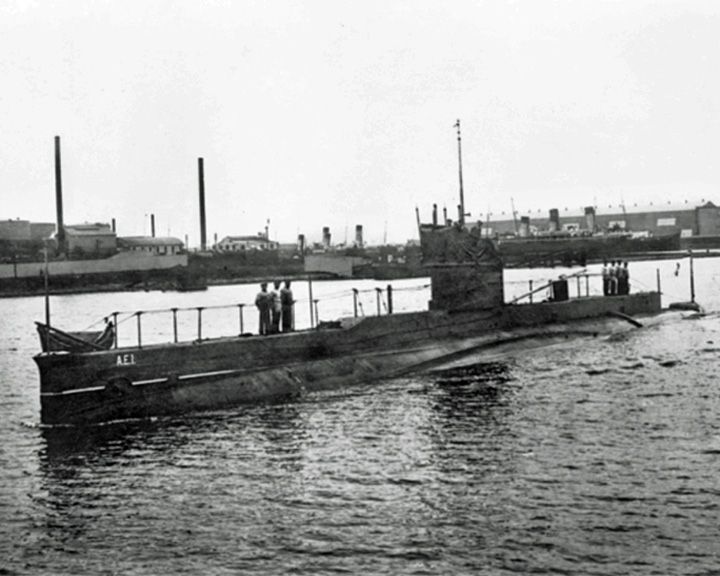 AE1, HMAS — Australia E-class submarine, British built The first Royal Australian Navy submarine and the first allied vessel lost in World War I with a crew of 35. She was assigned to the capture of the German Pacific colony of New Guinea at the outbreak of the World War I. LAUNCHED: 1913, May 18 → FATE: Lost at sea September 14, 1914; her wreckage located at a depth of 300 meters off the Duke of York Islands. |
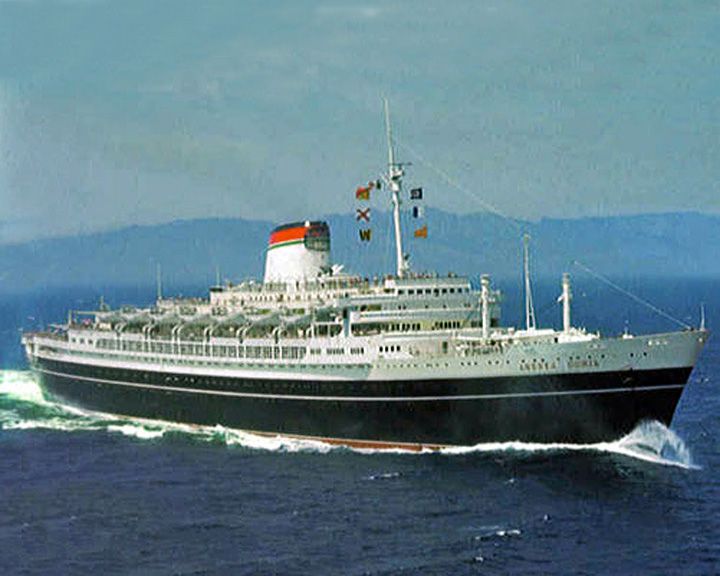 (Another (Another Andrea Doria, SS — Italian ocean liner Collided with the MS Stockholm in the Atlantic and sank; 52 people died. Of all Italy's ships at the time, she was the largest, fastest and supposedly safest. She was the last major transatlantic passenger ship to sink. LAUNCHED: 1953, January 18 → FATE: Sank July 26, 1956. |
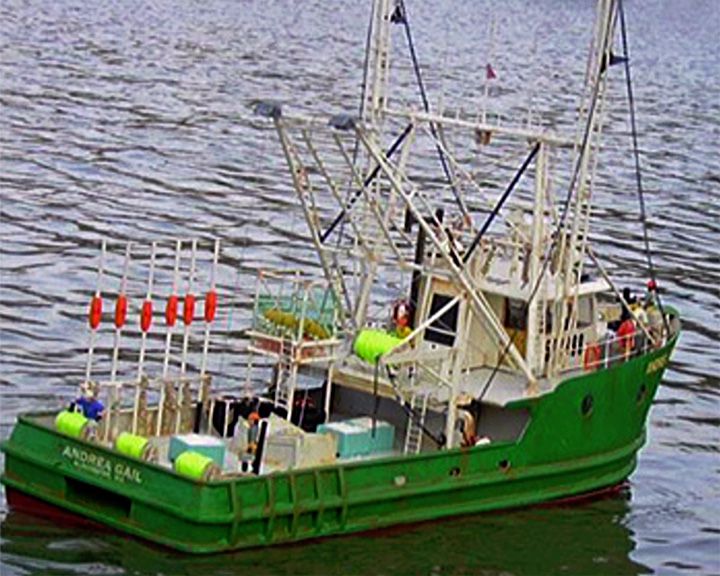 Andrea Gail — American fishing vessel Lost at sea off the coast of Massachusetts with six crew during The Perfect Storm of 1991. The tragedy was the basis of the 1997 book by Sebastian Junger and the 2000 movie The Perfect Storm. LAUNCHED: 1978 → FATE: Lost at sea October 28, 1991. |
 (Another (Another Arizona, USS — American battleship The sunken ship lies in Pearl Harbor with a memorial above it honoring the lost of 1177 crew. The sunken ship continues to leak about a quart of oil per day into the harbor. LAUNCHED: 1915, June 18 → FATE: Sunk during the December 7, 1941 Pearl Harbor attack. |
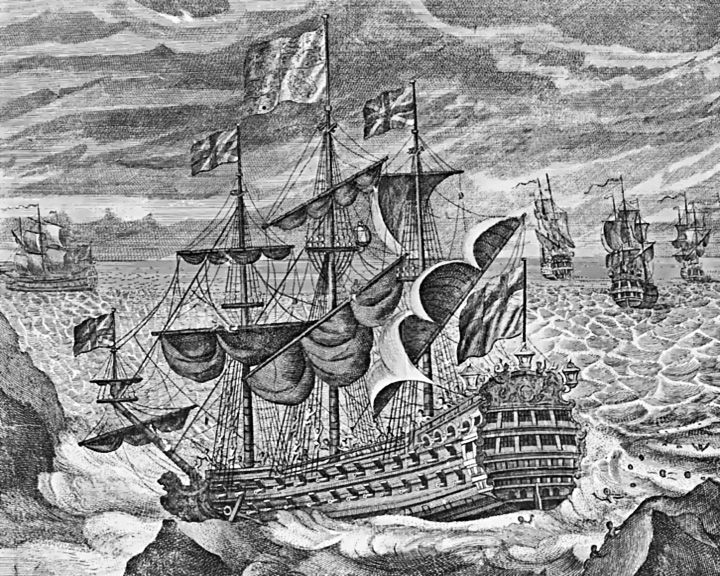 Association, HMS — British second-rate ship of the line After serving with distinction at the capture of Gibraltar, she ended up lost in a storm and wrecked with 3 other ships with the loss of nearly 2,000 lives. The rediscovery of the Association and so many historical artefacts led to legislation such as the Protection of Wrecks Act to preserve British historic wreck sites. LAUNCHED: 1697 → FATE: Wrecked of the Isles of Scilly October 22, 1707. |
 Atlantic, RMS — English ocean liner with sails and steam One of the deadliest civilian maritime disaster in history killing 535 people. The greatest disaster for the White Star Line prior to the loss of Titanic 39 years later. LAUNCHED: 1871, June 18 → FATE: Ran onto rocks and sank off the coast of Nova Scotia April 1, 1873. |
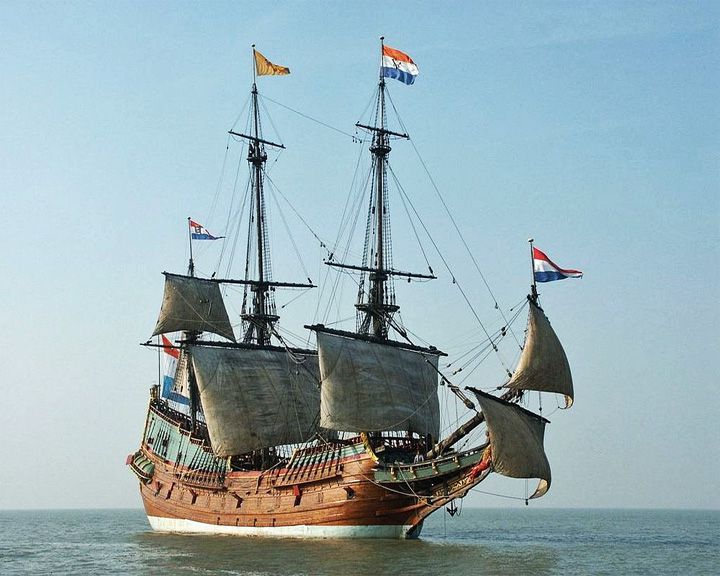 Batavia — Dutch galeon The original ship was made famous by the mutiny and massacre of over 125 crew and passengers. The replica was built with traditional materials using the tools and methods as in the original Batavia's construction. LAUNCHED: 1628, original ship; replica completed 1995 → FATE: Wrecked on Houtman Abrolhos in June 1629; replica is on exhibit at Lelystad, Netherlands. |


|
Page 2
|
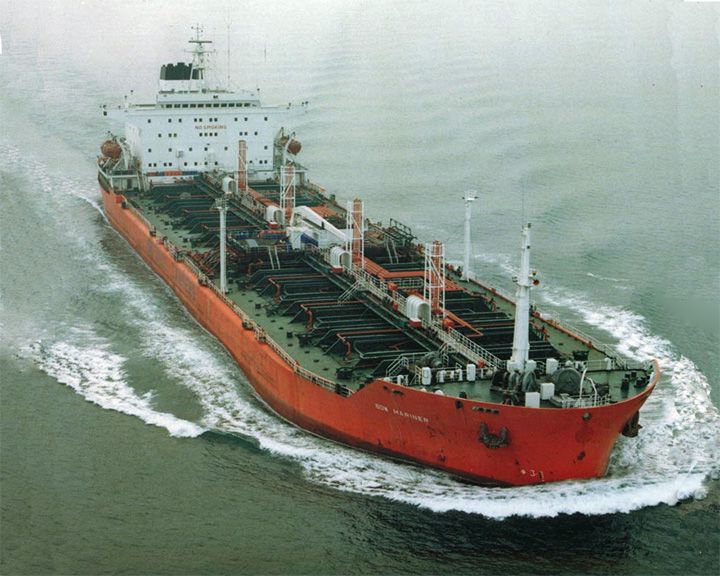 Bow Mariner — Norwegian tanker She exploded and sank taking with her 21 of the 27 crew. At the time of the accident she was carrying 3.5 million gallons of industrial ethanol. She sank in 240 feet of water. LAUNCHED: 1982 → FATE: Sank off the coast of Chincoteague Inlet, Virginia February 28, 2004. |
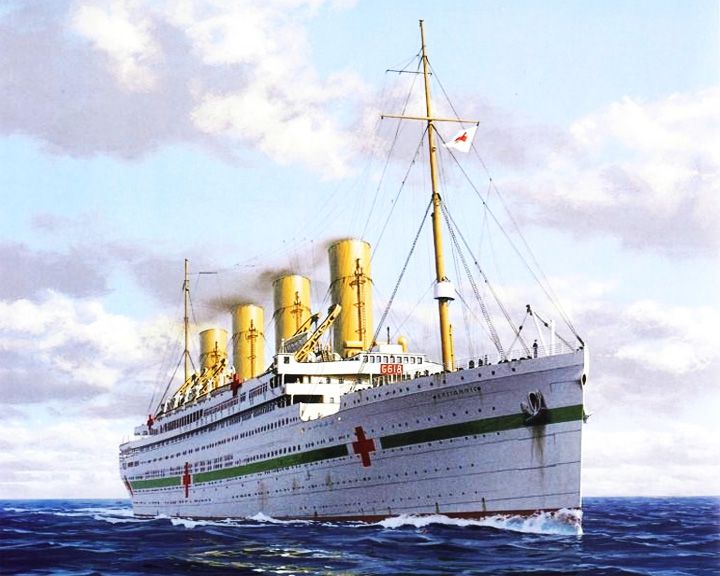 (Another (Another Britannic, HMHS — British ocean liner Largest ship lost during the World War I with the loss of 30 lives. Launched just before the start of the World War I, she was put to use as a hospital ship in 1915. With her loss, SS Bismarck was given to the White Star Line as part of post-war reparations. LAUNCHED: 1914, February 18 → FATE: Struck a mine and sank off the Greek island of Kea November 21, 1916. |
 Carroll A. Deering — American five-masted commercial schooner A famous maritime mystery after she was found with her crew of 11 missing. Theories of her demise include piracy, mutiny, hurricane, and paranormal events. Nine other ships also disappeared without a trace in that same area at about the same time. LAUNCHED: 1919 → FATE: Found wrecked off Cape Hatteras on January 31, 1921; scuttled on March 4 that year. |
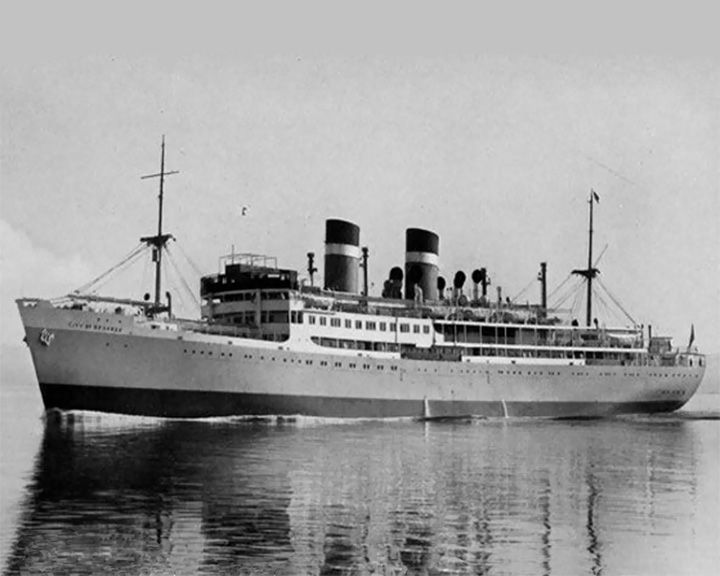 City of Benares, SS — British steam passenger ship The ship taking English evacuated children to Canada torpedoed during World War II by a German submarine. 260 of the 407 people on board were lost including 77 children. The sinking reportedly inspired actress and inventor Hedy Lamarr to develop and patent a system of spread spectrum radio as a means to guide anti-ship torpedoes. LAUNCHED: 1935, August 5 → FATE: Sunk September 18, 1940. |
 (Another (Another Cole, USS — American aegis-equipped guided missile destroyer In the news because of a suicide attack against it on October 12, 2000. Seventeen American sailors were killed in the incident while harbored in the Yemeni port of Aden. LAUNCHED: 1995, February 18 → FATE: Still in service. |
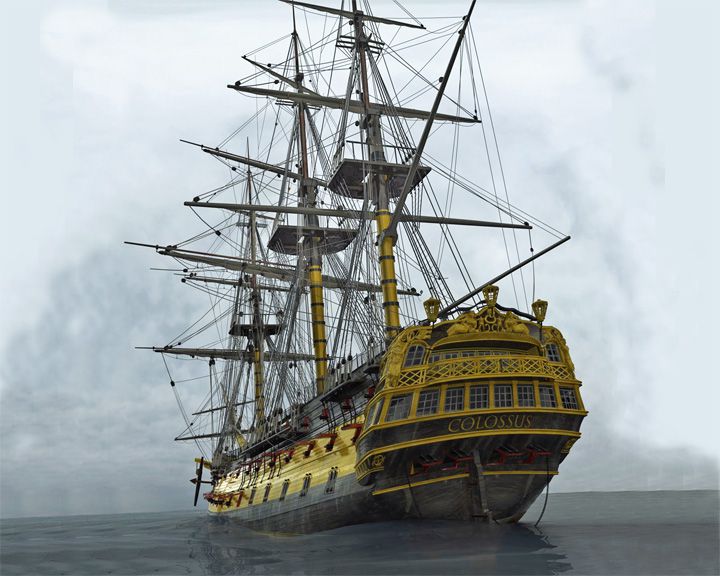 Colossus, HMS — British third-rate ship of the line After many battles and much glory, she lost her way and ran aground and sunk with one fatality. In 1974, fragments from the Colossus were discovered and reconstructed and are now displayed at the British Museum in London. LAUNCHED: 1787, April → FATE: Wrecked of the Isles of Scilly December 10, 1798. |
 (Another (Another Conception, MV — American dive boat One of the worst maritime disaster in California with the loss of 34 passengers. The boat had been refurbished at a cost of more than $1 million following an incident in 2005 when it had been stolen and run aground. LAUNCHED: 1981 → FATE: Caught fire and eventually sank off the coast of Santa Cruz Island, California, September 2, 2019. |
 (Another (Another Costa Concordia — Italian cruise ship Largest cruise ship disaster; ran aground on a reef off Isola del Giglio and capsized; 32 people dead. In 2008, she suffered damage to her bow when high winds pushed the ship alongside its dock. LAUNCHED: 2005, September 18 → FATE: Capsized January 13, 2012. |
|
Page 3
|
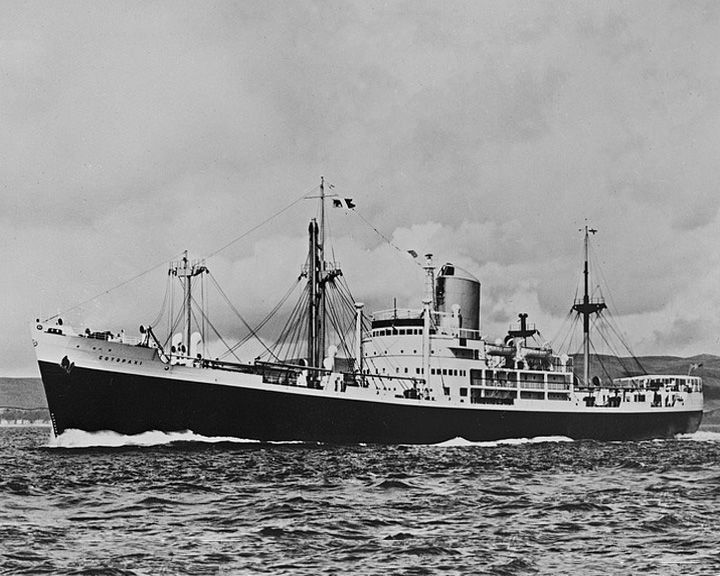 Cotopaxi, SS — American bulk carrier She disappeared on a voyage from Charleston, S.C., to Havana, Cuba; none of the 32 people on board were ever seen again. She became part of the legend of the Bermuda Triangle even though she was found outside that area. In the movie Close Encounters of the Third Kind, aliens are responsible for the ship's disappearance. LAUNCHED: 1918, November 15 → FATE: Lost 35 miles off St. Augustine in Florida, December, 1925. |
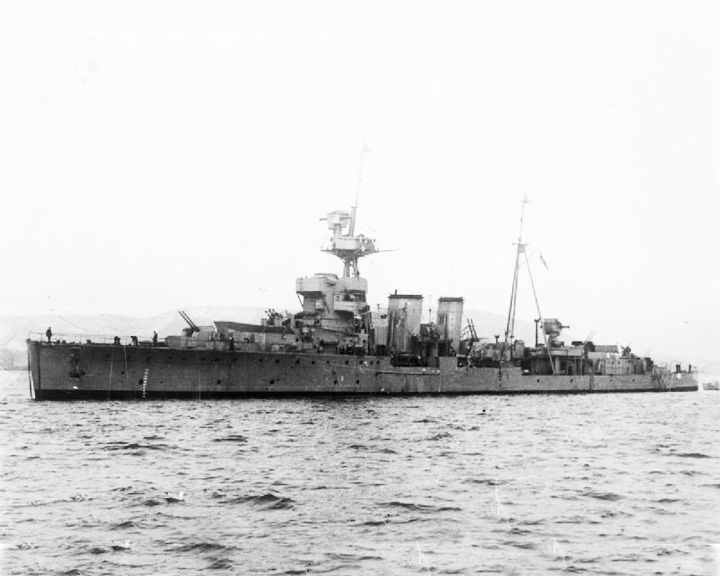 Curacoa, HMS — British light-cruiser Accidentally sliced in half and sunk by the ocean liner RMS Queen Mary, with the loss of 337 men. Her demise came while escorting convoy ships during World War II. Those who witnessed the collision were sworn to secrecy due to national security concerns. LAUNCHED: 1917, May 5 → FATE: Sunk in collision with HMS Queen Mary, 1942, October 2. |
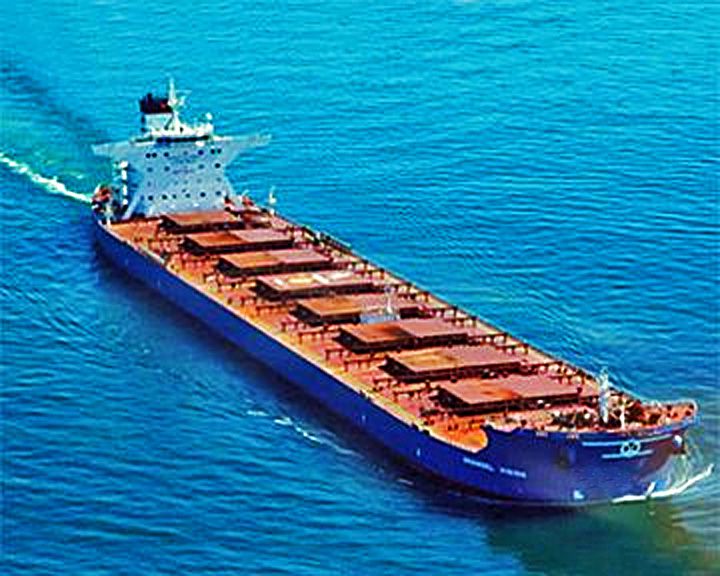 Derbyshire, MV — British cargo ship, oil-ore Largest British ship ever to have been lost at sea. All 42 crew members and two wives were lost with the ship during Typhoon Orchid in 1980. LAUNCHED: 1976, June → FATE: Sank south of Japan September 9, 1980. |
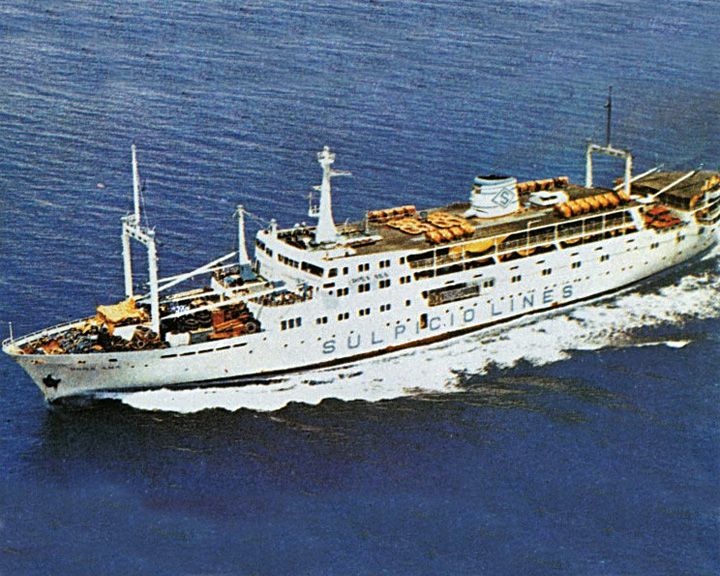 (Another (Another Doña Paz, MV — Japanese built, Philippine owned ferry A collision with MT Vector in 1987 resulted in the deadliest ferry disaster in history in peace time; possibly 4375 lives lost. As Don Sulpicio, on June 5, 1979, she was gutted by fire (with no casualties), beached and declared a total loss. The wreck was sold, refurbished and returned to service in 1981. LAUNCHED: 1963, April 18 → FATE: Collided with the oil tanker, caught fire and sank on December 20, 1987. |
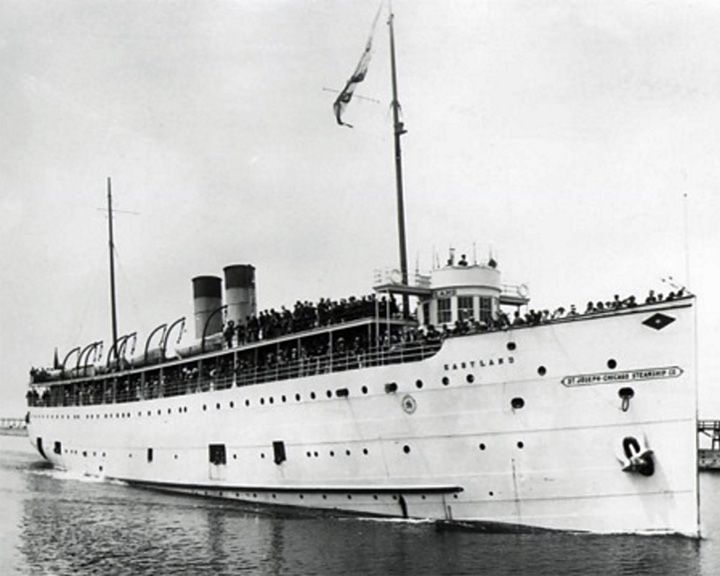 (Another (Another Eastland, SS — American steamship, passenger Largest loss of life from a single shipwreck on the Great Lakes. On the morning of July 24, 1915, the ship, being top-heavy, rolled over while docked in the Chicago River, killing 844 passengers and crew. LAUNCHED: 1903, May 18 → FATE: Sunk on July 24, 1915; raised, converted to a gunboat, renamed USS Wilmette February, 1918; sold for scrap in October of 1946. |
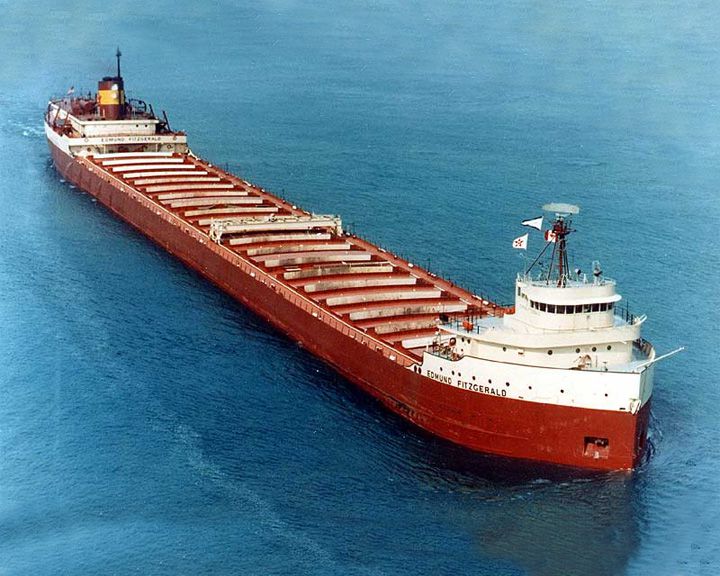 Edmund Fitzgerald, SS — American lake cargo ship, freighter; ore carrier Sank suddenly during a gale storm on Lake Superior without a distress signal. All 29 crew members were lost gaining it the appellation "Titanic of the Great Lakes." The wreck was found 17 miles from Whitefish Bay 4 days later. LAUNCHED: 1958, June 18 → FATE: Lost in a storm on November 10, 1975. |
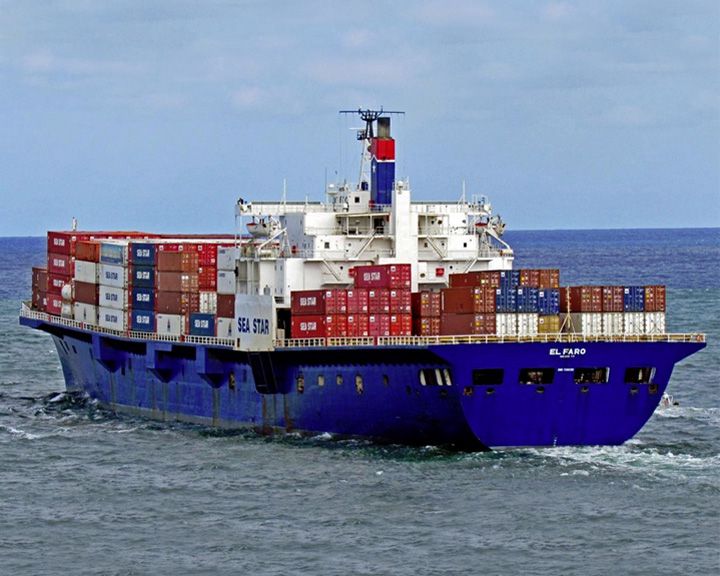 El Faro, SS — American container ship (cargo ship) The worst maritime disaster for a U.S.-flagged vessel in decades, resulting in the deaths of 33 crew. In 2003, prior to the invasion of Iraq in Operation Iraqi Freedom, the vessel, then named Northern Lights, ferried U.S. Marines and supplies from California to Kuwait. LAUNCHED: 1974, November 18 → FATE: Lost at sea with all hands on October 1, 2015 after losing propulsion near the eyewall of Hurricane Joaquin. |
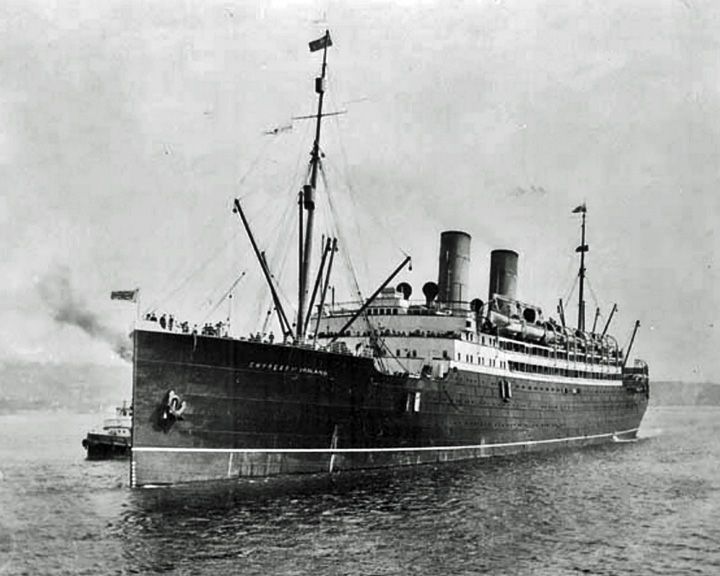 (Another (Another Empress of Ireland — Canadian ocean liner Collided with a Norwegian collier in 1914 claiming 1012 lives, the worst Canadian maritime accident in peacetime. The wreck lies in 40 meters (130 ft) of water, making it accessible to divers. Many artifacts from the wreckage are on display at the Site historique maritime de la Pointe-au-Père in Rimouski, Quebec. LAUNCHED: 1906, January 18 → FATE: Sank in the Saint Lawrence River following a collision May 29, 1914. |
|
Page 4
|
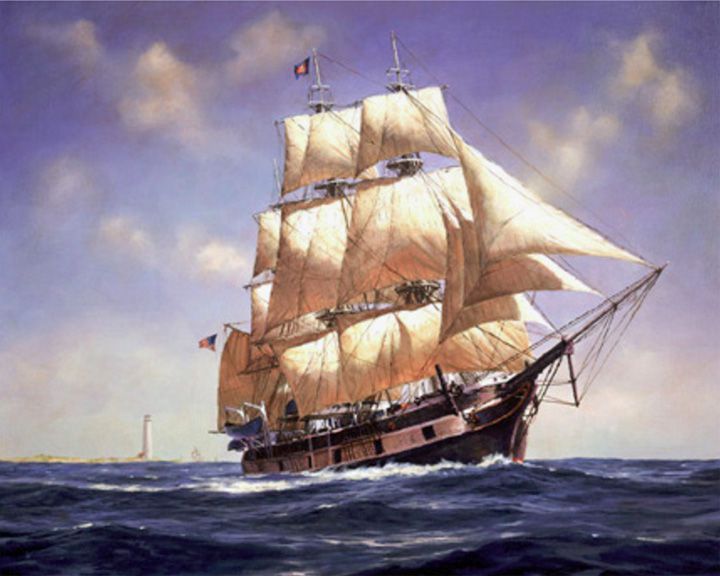 Essex — American barque; whale ship, a three-masted Basis of Nathaniel Philbrick's book In the Heart of the Sea and the movie as well as the inspiration for Herman Melville's 1851 classic novel Moby-Dick. She left Nantucket in 1819 on a whaling voyage in the South Pacific with 21 aboard. It was attacked and sunk by a sperm whale in the Pacific Ocean. Only two men survived. LAUNCHED: 1800, approx. → FATE: Sunk in the southern Pacific November 20, 1820. |
 (Another (Another Estonia, MS — German cruise ferry with bow opening car ramp Worst maritime ship disaster in the European waters in peacetime after the Titanic, costing 852 lives. As the largest Estonian-owned ship of the time, she symbolized the independence Estonia regained after the collapse of the Soviet Union. LAUNCHED: 1980, April 18 → FATE: Capsized and sunk in the Baltic Sea on September 28, 1994. |
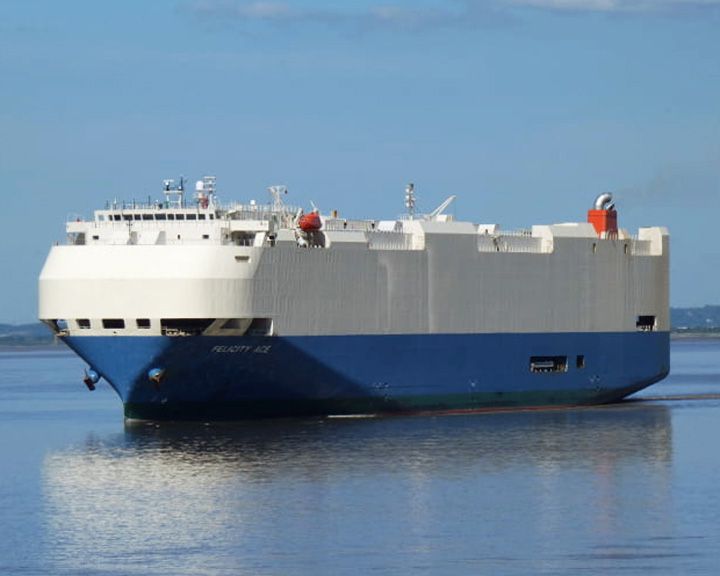 (Another (Another Felicity Ace — Japanese roll-on/roll-off cargo ship The greatest economic loss of cargo shipping in history, costing about $400 million dollars. She was carrying 3,965 Volkswagen Group cars, including Audi, Porsche, Lamborghini and Bentley models. All crew were safely evacuated. LAUNCHED: 2005, July 2 → FATE: She caught fire on February 16, 2022 south of the Azores, then on March 1, 2022, Felicity Ace capsized and sank. |
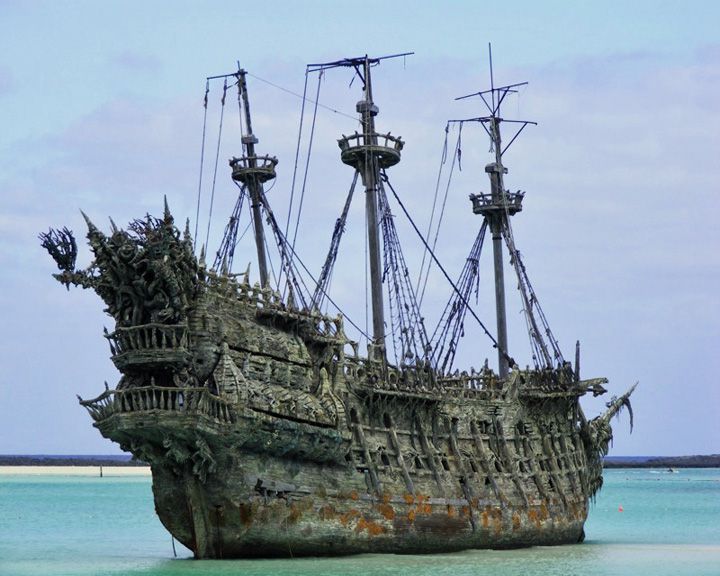 Flying Dutchman — Dutch sailing ship of unknown sort A legendary ghost ship that is doomed to sail the seas forever. She is much cited in movies, TV, books and other amusements. LAUNCHED: 1790, first reference → FATE: Casting about forever. |
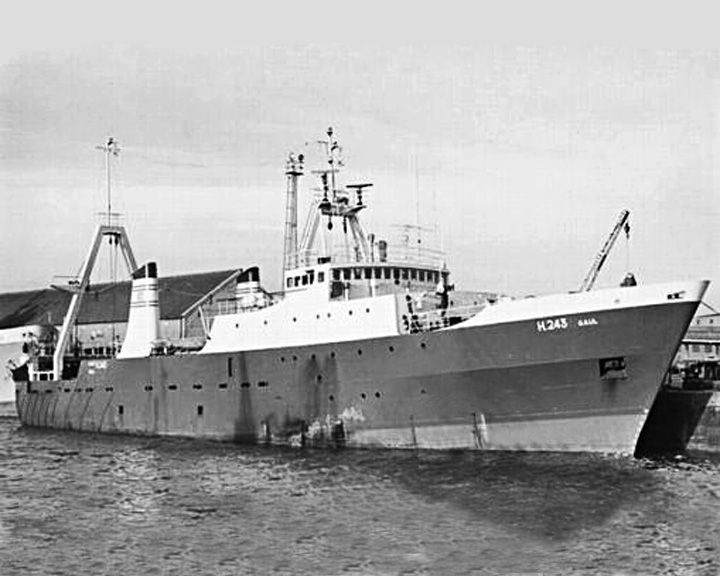 Gaul — English fishing trawler Worst peacetime maritime disaster to befall the UK fishing fleet. No distress signal was received and her loss was not realised until days later. 36 crew were lost. LAUNCHED: 1971, December 18 → FATE: Mysteriously sank in the Barents Sea, north of Norway February, 1974. |
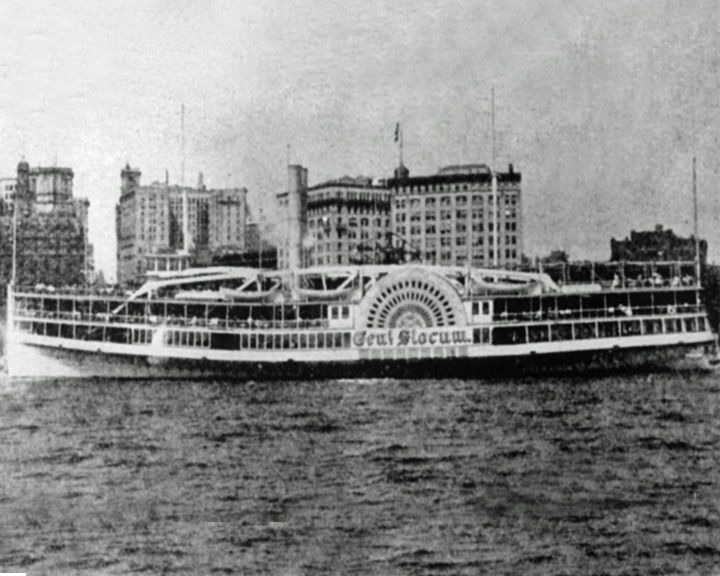 (Another (Another General Slocum — American river paddle steamboat, side-wheeler Caught fire and burned to the water line in New York's East River on June 15, 1904 killing 1,021 people. She was named after Major General Henry Warner Slocum, 1827-94. LAUNCHED: 1891, April 18 → FATE: The remains were recovered and converted into a barge, which sank in a storm in 1911. |
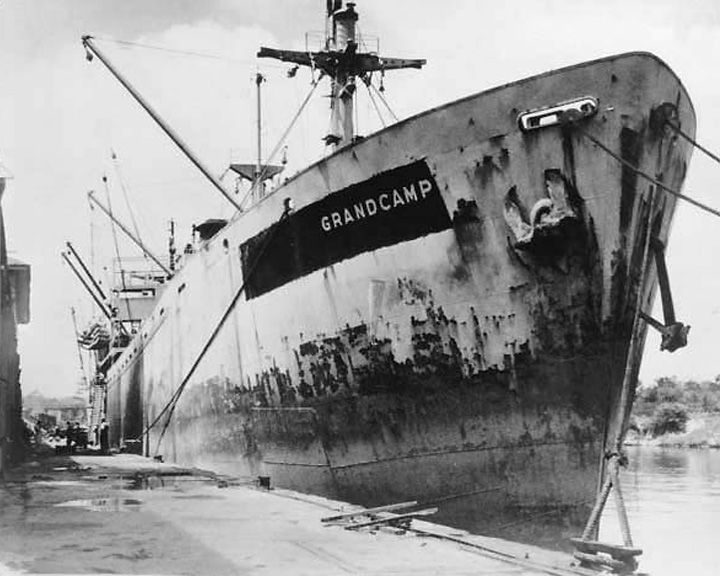 Grandcamp, SS — American liberty ship Origin of the deadliest industrial accident in U.S. history and one of the largest non-nuclear explosions. The initial blast and subsequent fires and explosions in other ships and nearby oil-storage facilities killed at least 581 people, wounding over 5,000. LAUNCHED: 1942, November → FATE: Exploded and destroyed April 16, 1947. |
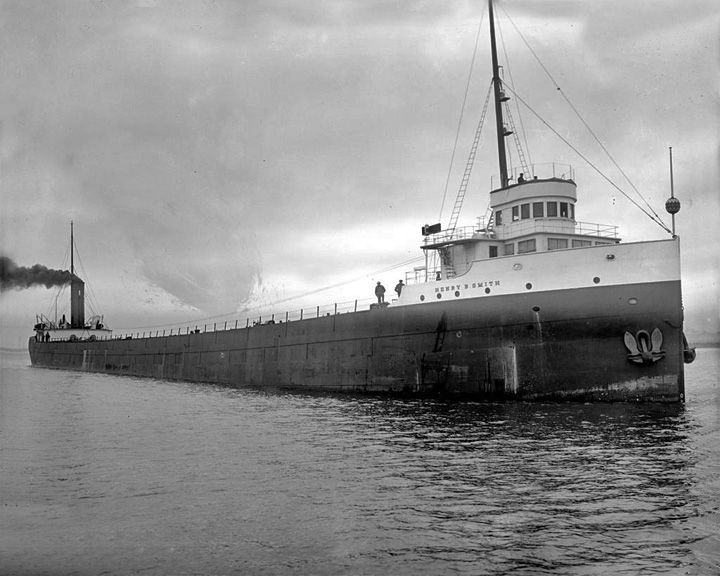 Henry B. Smith, SS — American lake cargo ship, freighter; steel-hulled, propeller-driven One of several ships lost in the Great Lakes Storm of 1913. The crew of 25 were lost and the wreck has not been located as of 2017. LAUNCHED: 1906, May → FATE: Foundered and sank near Marquette Michigan, November 10, 1913. |
|
Page 5
|
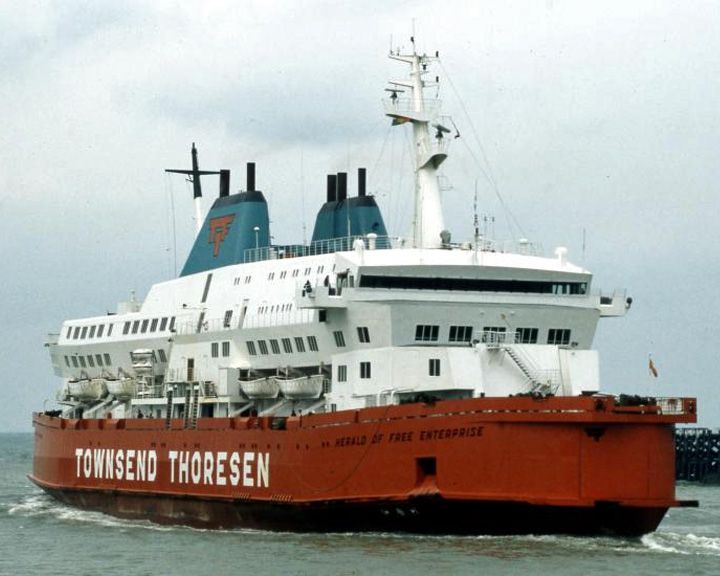 (Another (Another Herald of Free Enterprise, MS — British roll-on/rolll-off ferry Capsized moments after leaving the Belgian port, killing 193 passengers and crew, the highest death-count of any peacetime British maritime disaster since 1919. The ship owners, Townsend Thoresen, re-branded the company as P&O European Ferries, repaint the fleet's red hulls in navy blue and remove the TT logo from the funnels. LAUNCHED: 1980 → FATE: Because deck doors were left open, she filled with water and capsized March 6, 1987; was raised April 1987 and scrapped in 1988. |
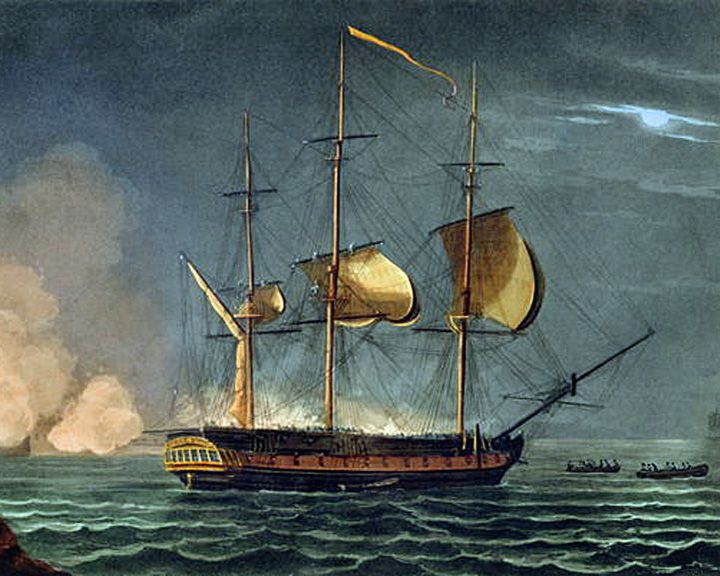 Hermione, HMS — British frigate, fifth-rate Notorious for having the bloodiest mutiny in British naval history. Mutineers gave her to the Spaniards in 1797 who put her in service as Santa Cecilia. She was retaken by the British in 1799 and renamed the Retaliation. LAUNCHED: 1782, September → FATE: Broken up at Deptford in June 1805. |
 Houston, USS (CA-30) — American cruiser, Northampton-class During the Battle of Sundra Strait, she put up a valiant effort an against overwhelming Japanese offense. In the 1930s, she made several special cruises, several with President Franklin Roosevelt aboard. LAUNCHED: 1929, September 7 → FATE: Sunk by a torpedo, 1 March 1942. |
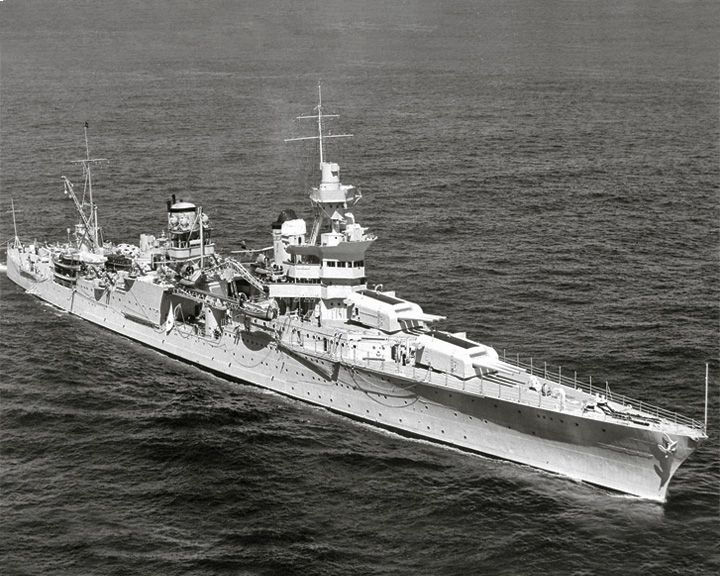 Indianapolis, USS — American Portland-class cruiser Last U.S. ship sunk by enemy in World War II; greatest loss of life at sea in the U.S. Navy's history. Four days after delivering the 1st atomic bomb to Tinian, she was torpedoed and sank with 300 crew. The 900 survivors faced exposure, dehydration, and shark attacks until 4 days later only 317 were rescued. LAUNCHED: 1931, November 18 → FATE: Sunk by a Japanese submarine July 30, 1945. |
 (Another (Another Iowa, USS — American fast battleship First of her class, the last battleship in active service in the world. During a gunnery exercise, on April 19, 1989, an explosion ripped through a gun turret, killing 47 crewmen. LAUNCHED: 1942, August 18 → FATE: Anchored at San Pedro as a museum ship. |
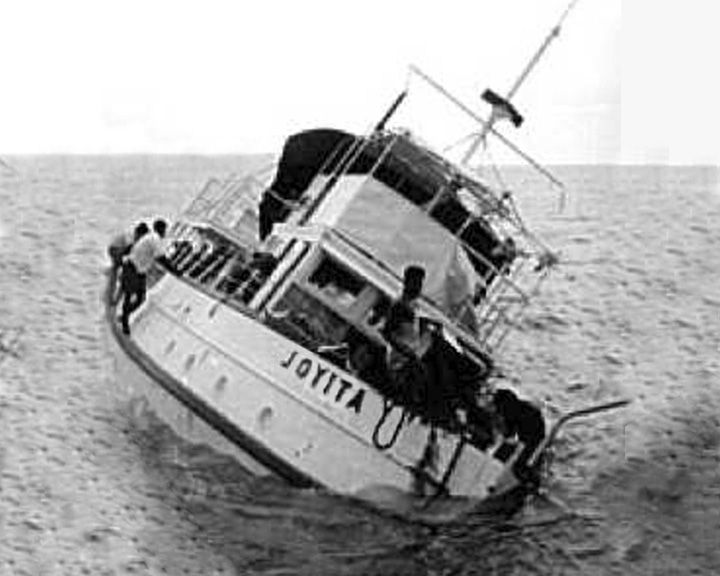 Joyita — American luxury yacht, outfitted as a yard patrol boat Found adrift in the South Pacific, her passengers and crew mysteriously missing in 1955. She is sometimes referred to as the "Mary Celeste of the South Pacific." She has been the subject of several narrations offering explanations ranging from rational to supernatural. LAUNCHED: 1931 → FATE: Broken up near Ovalau, Fiji in the 1970s. |
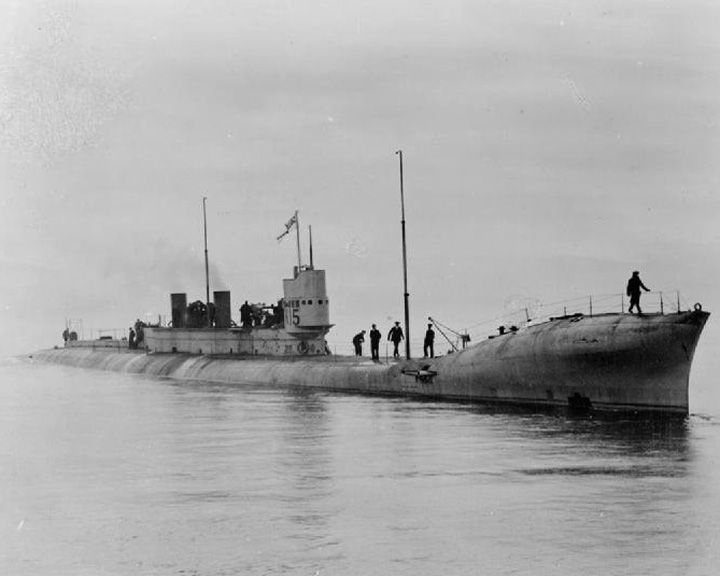 K-13 — British K-class submarine The first in the class of the steam-powered submarines. She sank in an accident during sea trials in early 1917 and was salvaged and recommissioned as HMS K22. 32 people died in the accident and 48 were rescued. LAUNCHED: 1916, November 11 → FATE: Sold for scrapping December 16, 1926 in Sunderland. |
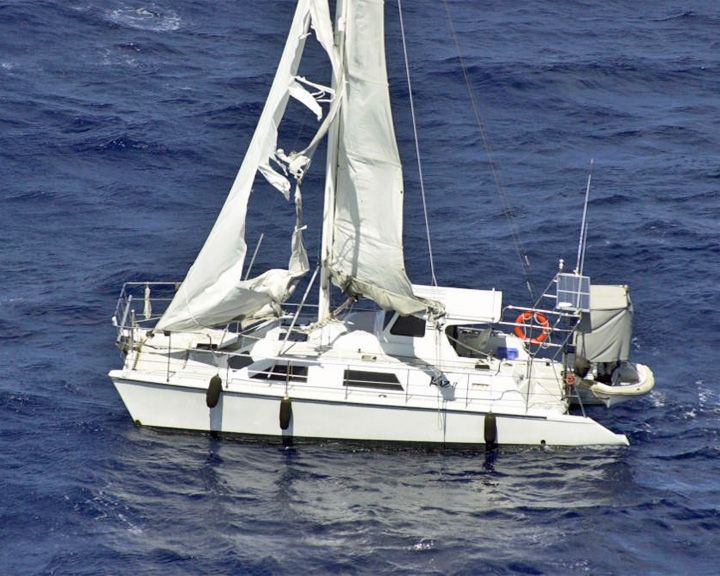 Kaz II — Australian catamaran yacht Three men sailing aboard their yacht mysteriously vanish without a trace off the north-eastern coast of Australia. The fate of her crew is still unknown and the circumstances in which they disappeared can be compared to that of Marie Celeste. LAUNCHED: 1989 → FATE: Unknown. |
|
Page 6
|
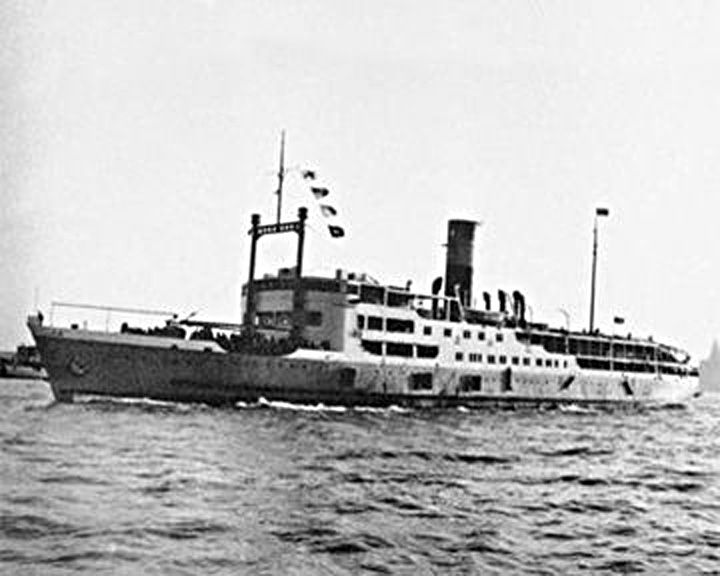 Kiangya, SS — Chinese steamship, passenger Blew up, probably after hitting a World War II Japanese mine, resulting in over 3000 killed. She was packed with refugees from the Chinese Civil War fleeing the advancing Communist army when she sank. LAUNCHED: 1939 → FATE: Sank December 4, 1948 in the mouth of the Huangpu River 50 miles south of Shanghai. |
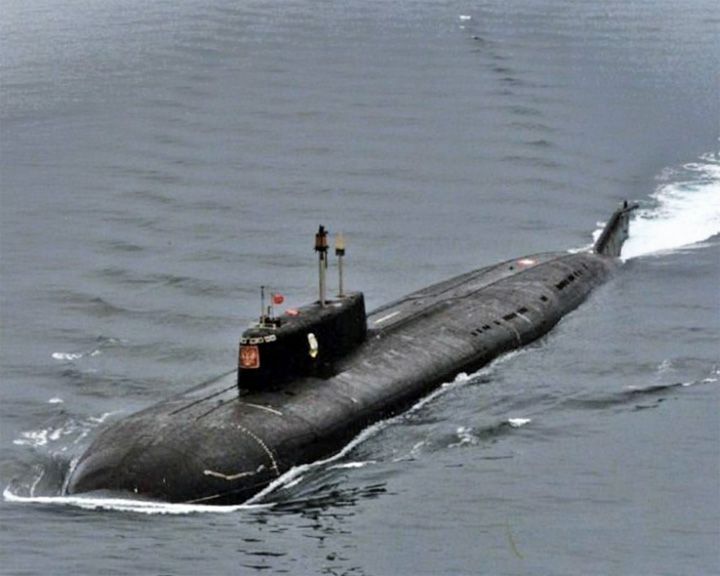 Kursk, K-141 — Russian nuclear submarine Sank with all 118 crew; Russia declined rescue offers even though rescue of some was possible. With the use of a giant barge, the she was eventually raised and the dead recovered and buried in Russia. LAUNCHED: 1994 → FATE: Sank in the Barents Sea on August 12, 2000. |
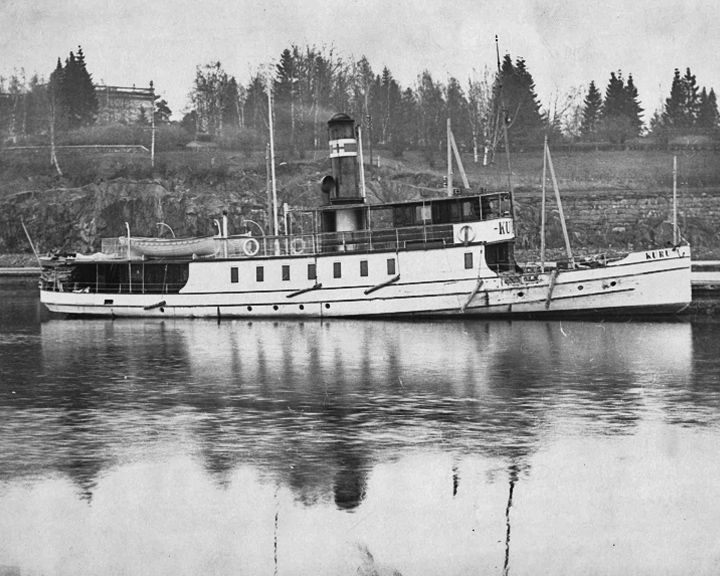 Kuru, SS — Finnish steamship On September 7, 1929, she capsized and sank on lake Näsijärvi, in Tampere making it the worst maritime disaster in Finnish waters with the loss of 136 lives. The capsizing was mainly due to a high center of gravity when a third deck level was added in 1927. LAUNCHED: 1915 → FATE: The wreck was raised and repaired shortly afterwards and served until 1936. |
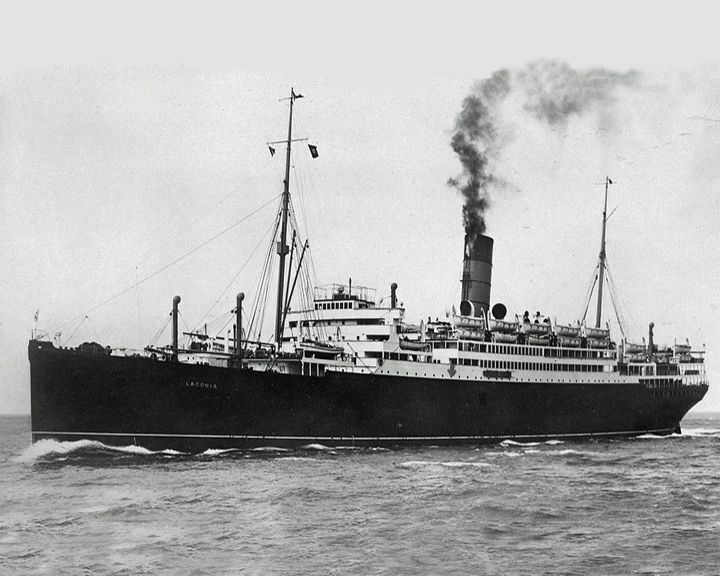 Laconia, RMS — British ocean liner, then converted to a troop ship After a torpedo attack, a dramatic rescue of the ship's passengers turned to disaster and became known as the Laconia incident. U.S. planes attacked the several German U-boats trying to rescue its 2,732 passengers and crew most of whom were abandoned by the subs, resulting in a loss of over 1,649 people. The sinking was portrayed in the 2011 British TV movie. LAUNCHED: 1921, April 18 → FATE: Sunk by German submarine U-156 off the coast of West Africa, September 12, 1942. |
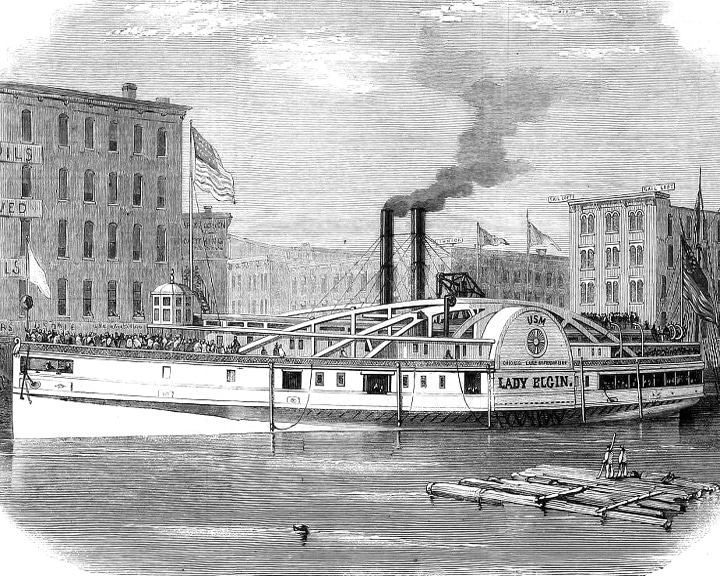 Lady Elgin, PS — American paddle steamer The wooden-hulled sidewheel steamship sank in Lake Michigan near Port Clinton, Illinois with the loss of 300 lives. During her time afloat, she was one of the most elegantly appointed passenger ships sailing the Great Lakes. LAUNCHED: 1851 → FATE: Sunk in collision with schooner Augusta of Oswego September 8, 1860 |
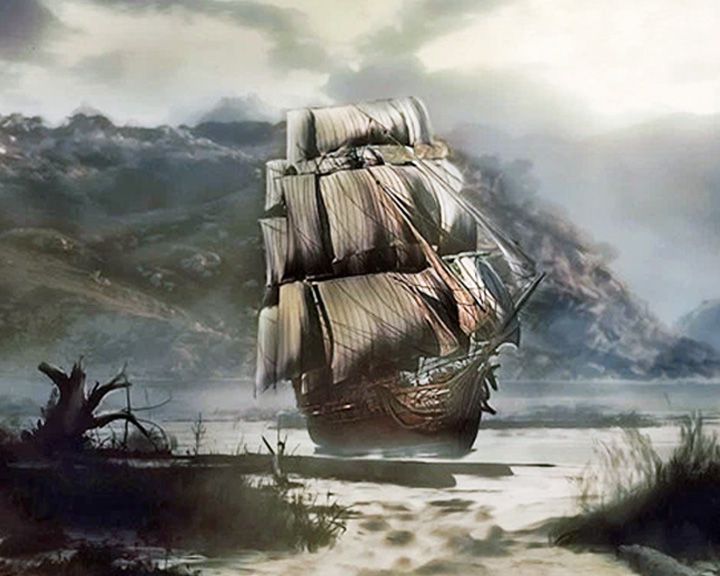 Lady Lovibond — English schooner A legendary ship said to reappear every fifty years as a ghost ship, yet no records of the ship or its sinking exist. The ship may have been a fabrication from a newspaper article in 1924, or based on phantom sightings between 1914 and 1924. LAUNCHED: 1798, February 12, first supposed sighting → FATE: Allegedly wrecked on the Goodwin Sands, off the coast of south-east England, on February 13, 1748, killing everyone aboard. |
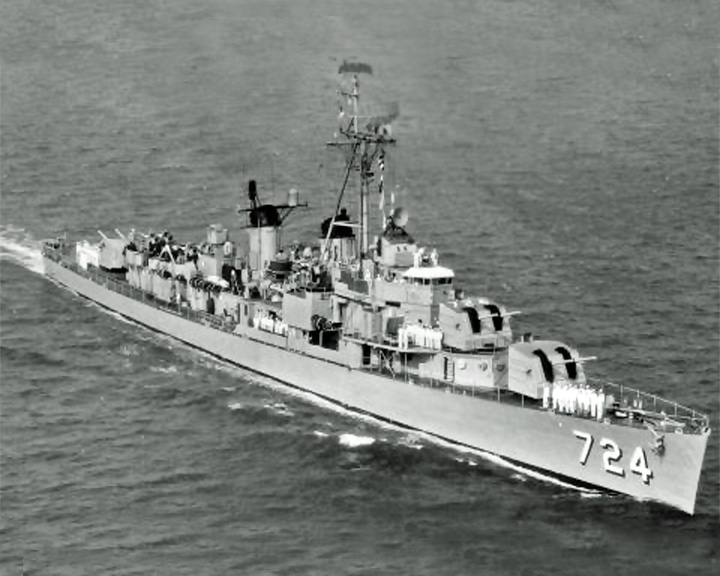 Laffey, USS — American Allen M. Sumner-class destroyer During the battle of Okinawa, she withstood the greatest kamikaze air attack in history, losing 32 killed and 71 wounded. Laffey was declared a National Historic Landmark in 1986, the only remaining US-owned Sumner-class destroyer LAUNCHED: 1943, November 21 → FATE: After WWII, she was repaired and continued to serve until decommissioned March 9, 1975. Laffey is currently a museum ship at Patriots Point in Mount Pleasant, South Carolina. |
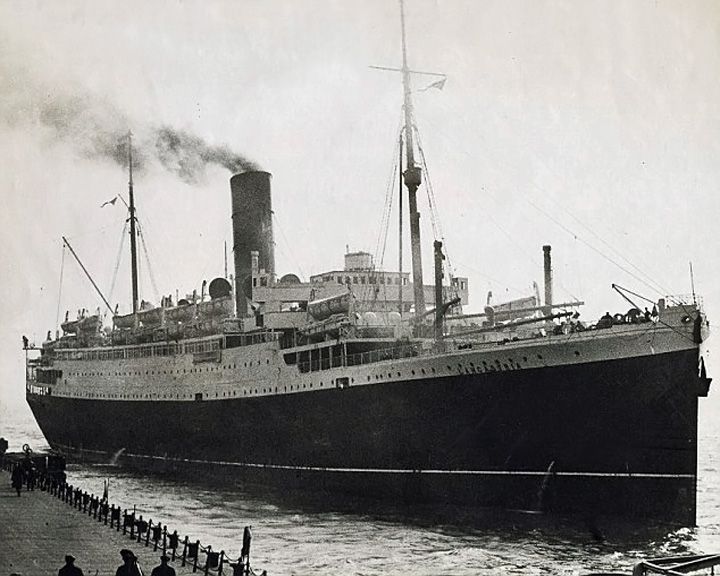 Lancastria, RMS — British ocean liner Worst single loss of life in British maritime history and the bloodiest single engagement for UK forces in World War II. Over 4000 people were lost while evacuating British nationals and troops from France. LAUNCHED: 1922, June → FATE: Sunk off the French port of St. Nazaireon June 17, 1940. |
|
Page 7
|
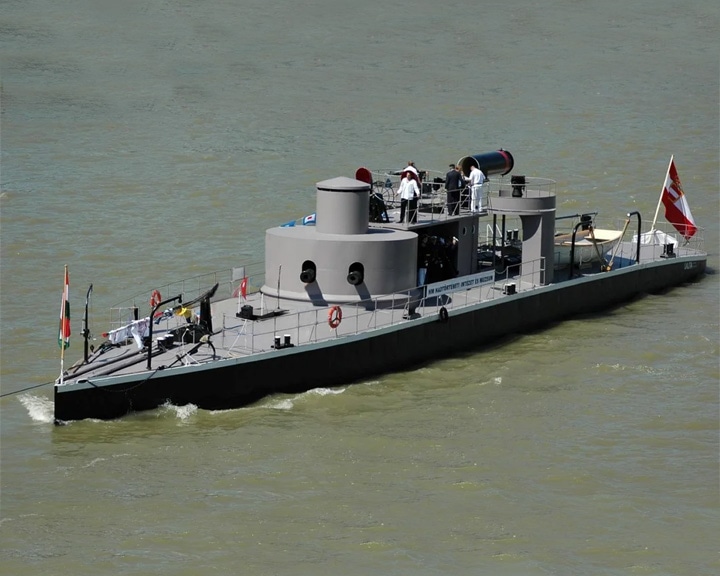 Leitha, SMS (later named Lajta) — Austro-Hungarian river monitor The first river monitor in Europe. The oldest and the only restored warship of the Austro-Hungarian Navy. In October 1914, her turret took a direct hit, all the crew inside being killed. LAUNCHED: 1872, October 13 → FATE: Restored in 2009, Lajta is currently moored on the Danube in Budapest as a museum ship |
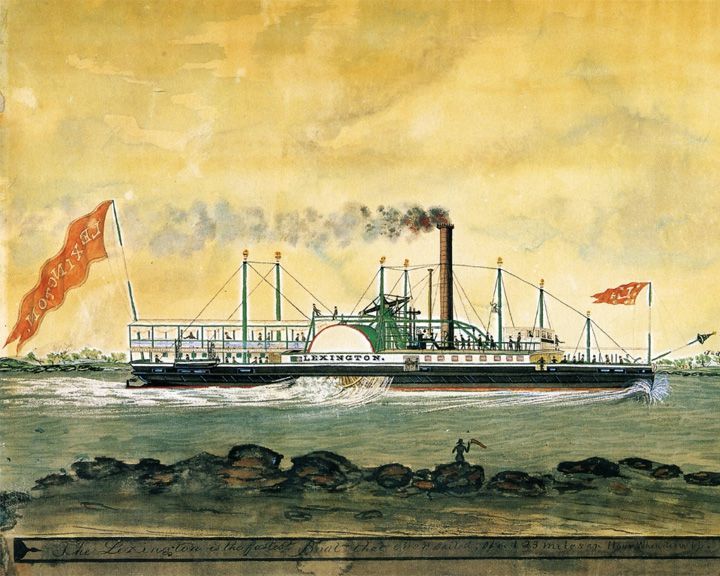 (Another (Another |
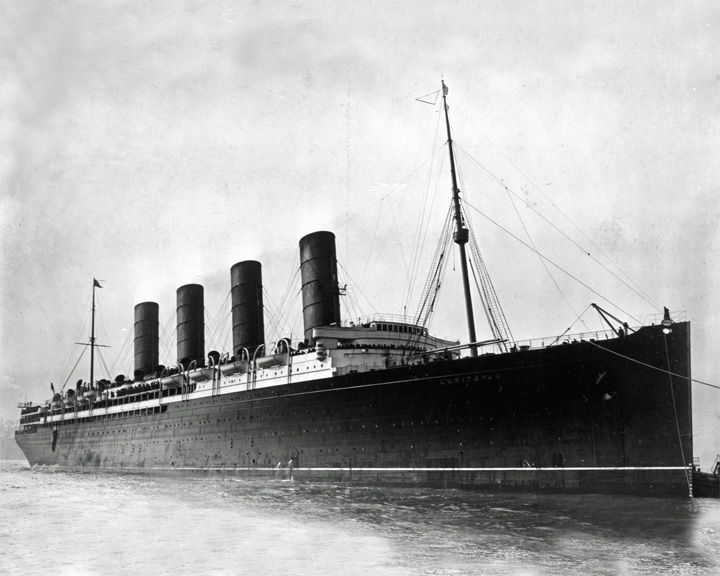 (Another (Another Lusitania, RMS — British ocean liner Torpedoed by German submarine U-20, killing 1,198 people. Her sinking during transatlantic passage turned public opinion against Germany in World War I. LAUNCHED: 1906, June 18 → FATE: Sank 70 kms from the Old Head of Kinsale May 7, 1915. |
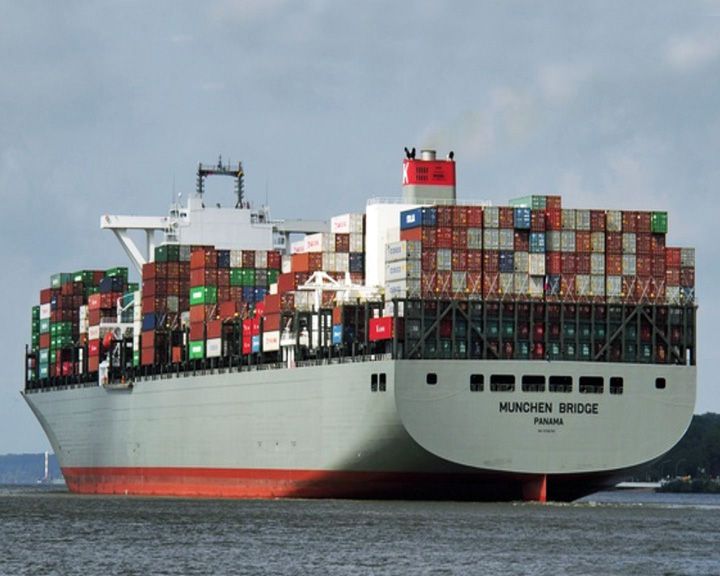 München, MS — German LASH carrier (cargo ship) Sank with with 28 crew in a severe storm, probably due to rogue waves and featured in several television documentaries. A court case regarding the loss of cargo in this tragedy set a legal precedent used in many legal textbooks illustrating the administration of the Uniform Commercial Code. LAUNCHED: 1972, May 18 → FATE: Sank in the North Atlantic December 1978. |
 (Another (Another Maine, USS — American battleship Its sinking precipitated the Spanish-American War. Sent to protect U.S. interests during the Cuban revolt against Spain, she exploded without warning and sank, killing 274 men. LAUNCHED: 1889, November 18 → FATE: Sank in the Havana Harbor February 15, 1898. |
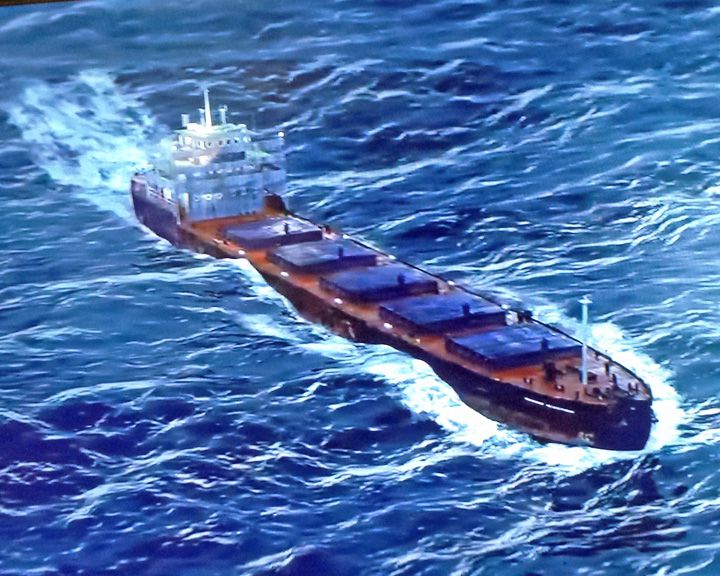 Marine Electric — American bulk carrier Her sinking resulted in some of the most important maritime reforms in the 20th century. The tragedy, with the loss of 34 crew, resulted in better inspection standards, mandatory survival suits for winter North Atlantic runs, and creation of the Coast Guard's Aviation Survival Technician program. LAUNCHED: 1944, May 2 → FATE: Sank February 12, 1983 about 30 miles off the coast of Virginia. |
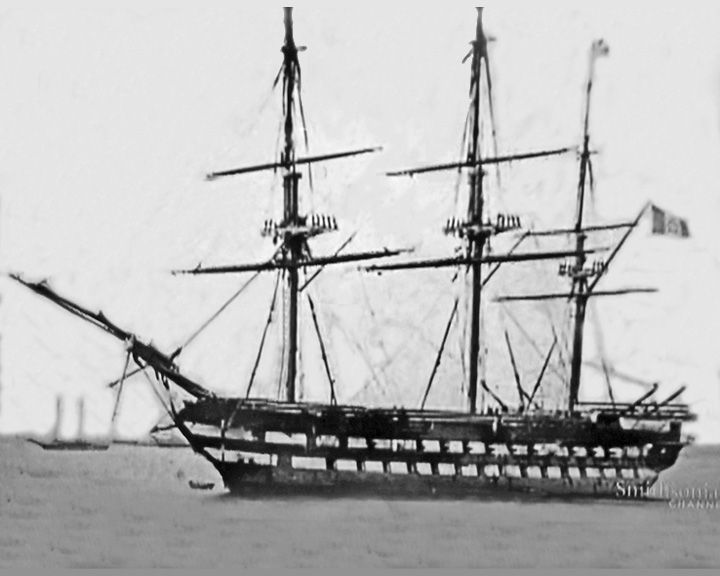 Mary Celeste — American brigantine The "ghost ship" found near the Strait of Gibraltar abandoned by its seven crew members in 1872. The popular mystery of the ship began with Arthur Conan Doyle's story in 1884, about a derelict ship which he called Marie Celeste. LAUNCHED: 1860 → FATE: Intentionally scuttled in January of 1885. |
 (Another (Another Medusa — French frigate Most famous sea disaster of the nineteenth century. After hitting a shoal, most of the 400 passengers were evacuated while 151 men took refuge on an improvised raft. After 13 days at sea, the raft was discovered with only 15 men still alive. The raft carrying people was the subject of a famous painting, The Raft of the Medusa by French artist Théodore Géricault. LAUNCHED: 1810 → FATE: Beached on Bank of Arguin in 1817. |
|
Page 8
|
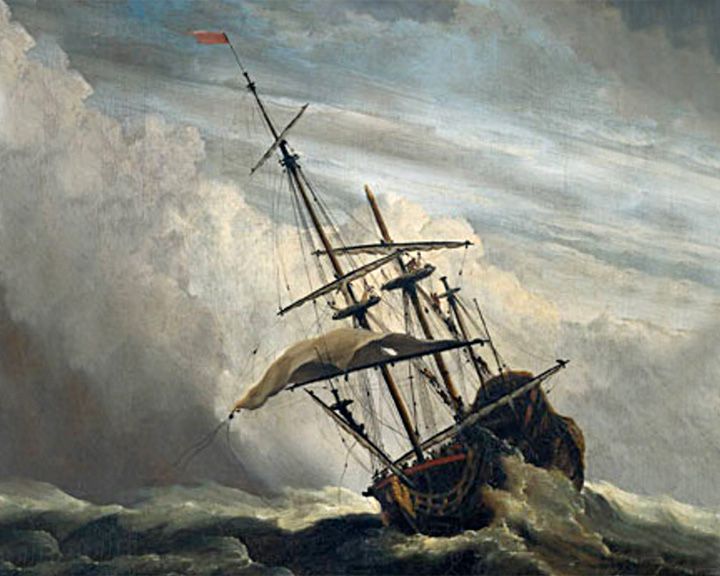 Merchant Royal — English merchant ship Lost at sea with 18 men off Land's End, Cornwall, England, the ship is one of the richest sunken treasures. Lost were more than half million Spanish silver pesos, 500 bars of gold and ingots of silver, and hundreds of pieces of jewelry. LAUNCHED: 1627 → FATE: Sank in bad weather September 23, 1641. |
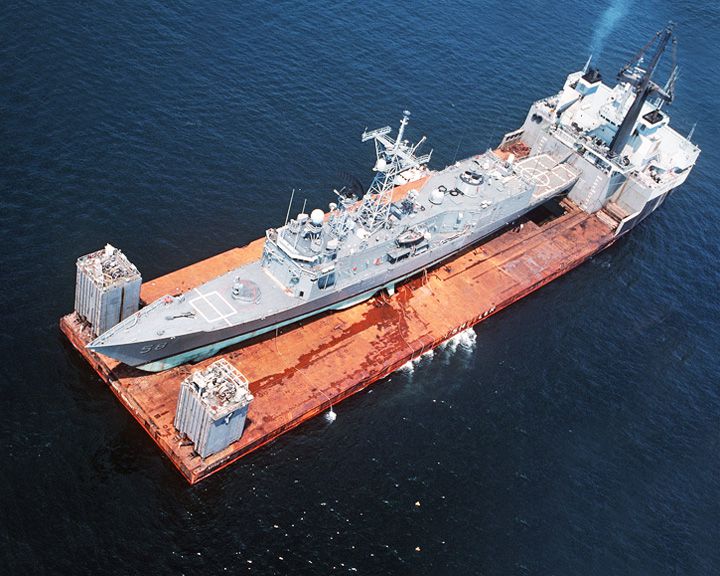 Mighty Servant 2 — American heavy lift ship, semi-submersible Hauled the USS Samuel B. Roberts from Dubai to Newport, RI after the frigate struck a mine in the Persian Gulf. Along with sister ships Mighty Servant 1 and Mighty Servant 3, used mainly for moving oil drilling rigs. LAUNCHED: 1983 → FATE: Capsized near the Indonesian island of Singkep with loss of 5 crew November 2, 1999. |
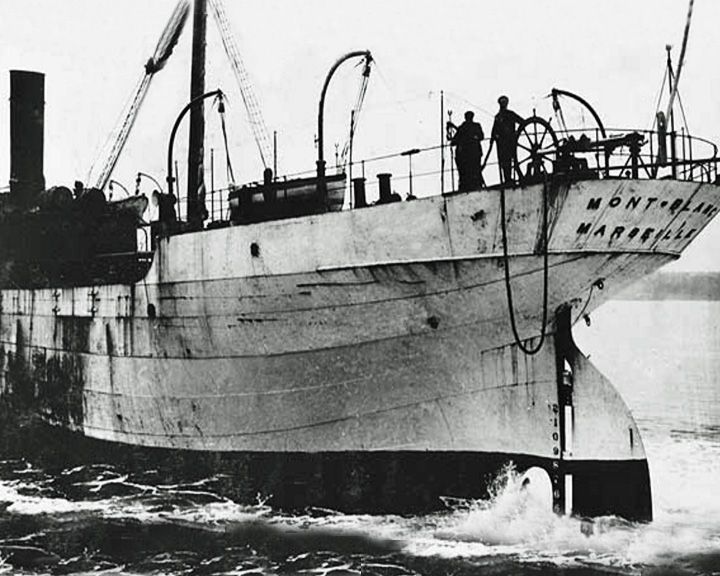 Mont Blanc, SS — French cargo ship, freighter The worst human-made disaster in Canadian history and was the world's largest human-made blast until the detonation of an atomic bomb in 1945, and known as Halifax Harbor. The collision with the Norwegian steamship SS Imo caused her ammunition cargo to exploded in Halifax Harbor, resulting ing 2000 killed, 9000 injuried, 13,630 homes wrecked, and 6000 left homeless LAUNCHED: 1899 → FATE: Blown to pieces December 6, 1917, after the collision. |
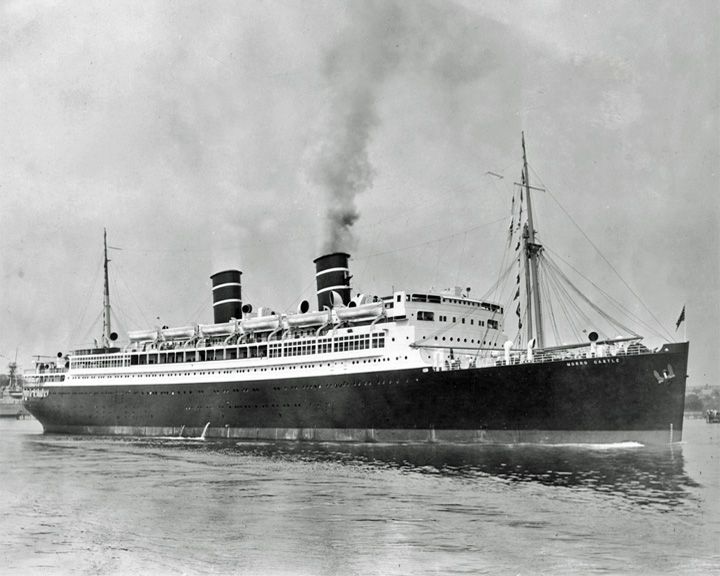 (Another (Another Morro Castle, SS — American cruise ship A devastating fire aboard ship that killed 137 resulted in greater fire safety on newer ships. The burnt ship ended up at Asbury Park, NJ, where it became a tourist attraction. The tragedy resulted in the establishment of the United States Merchant Marine Academy. LAUNCHED: 1930, August 18 → FATE: Beached on September 8, 1934, scrapped March 29, 1935. |
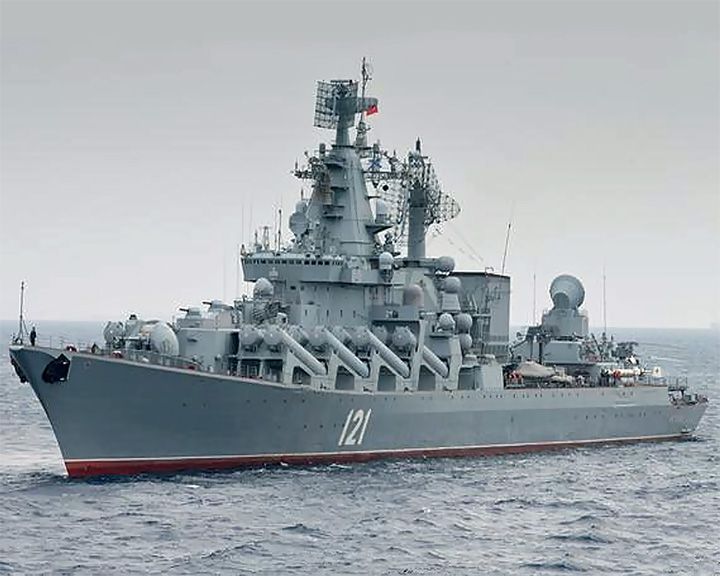 Moskva — Russian guided missile cruiser Flagship of the Russian Black Sea Fleet and helped lead the naval assault during the 2022 Russian invasion of Ukraine. The Russian Ministry of Defence said she sank after a fire caused a munitions explosion. LAUNCHED: 1979 → FATE: Sunk by Ukraine forces on April 14, 2022. |
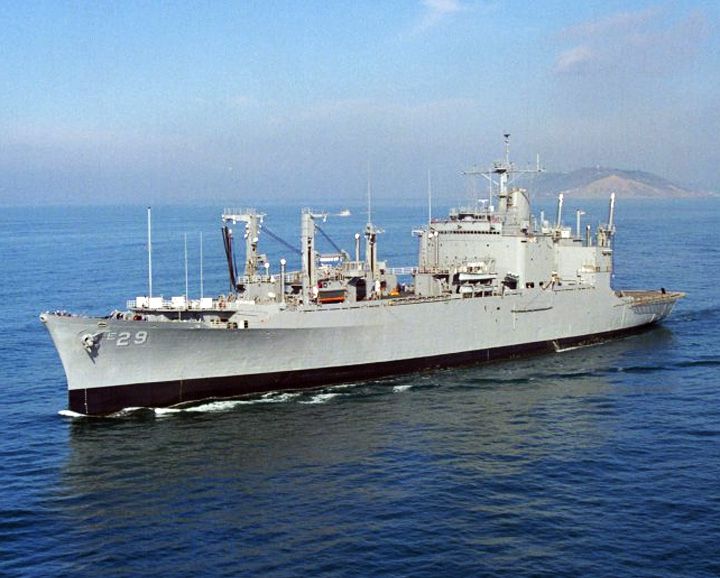 Mount Hood, USS — American ammunition ship The ship and dozens of surrounding vessels were obliterated with over 370 casualties in a massive explosion. The ship's 3800 tons of ordnance produced a blast equivalent to a tactical nuclear weapon. LAUNCHED: 1943, November 28 → FATE: Exploded on November 10, 1944, at Seadler Harbor on Manus Island. |
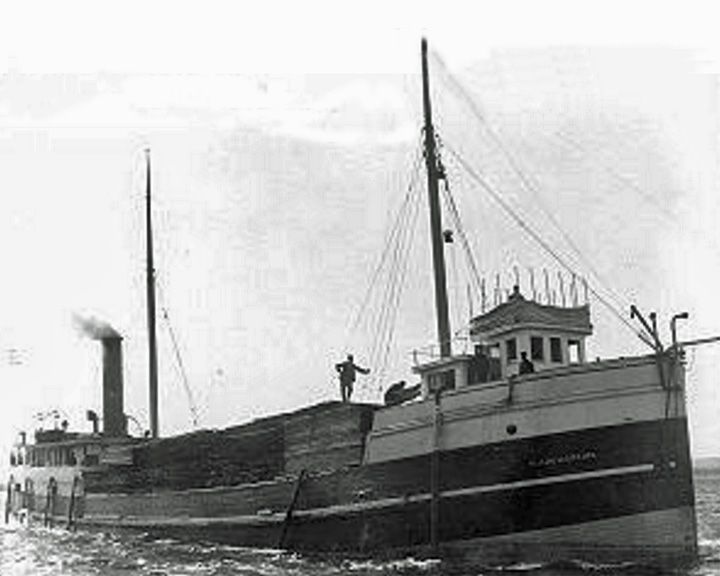 Myron, SS — American wooden steamship, built as a lumber hooker The wreck is protected as part of an underwater museum in the Whitefish Point Underwater Preserve. She defied the adage "Lake Superior seldom gives up her dead" when all 17 crew drifted ashore found frozen to death. The captain survived. LAUNCHED: 1888 → FATE: Sank to the end of Lake Superior during a storm on November 23, 1919. |
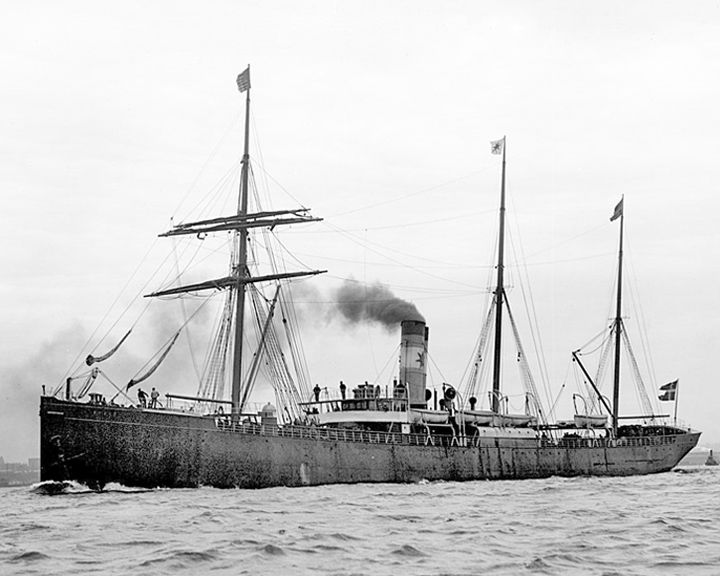 Norge, SS — Norwegian, then Danish ocean liner The biggest civilian maritime disaster in the Atlantic in the until the sinking of the Titanic. More than 635 people died during the sinking, among them 225 Norwegians. The disaster remains the worst in Danish maritime history. LAUNCHED: 1881, June 18 → FATE: Ran aground and sank June 28, 1904. |
|
Page 9
|
 (Another (Another Norman Atlantic, MS — Italian roll-on/roll-off car ferry At least thirty people died when she caught fire in the Strait of Otranto, in the Adriatic Sea. More than 400 people were rescued, most in nighttime helicopter sorties despite high winds and seas. LAUNCHED: 2009, November, 2 → FATE: Scrapped. |
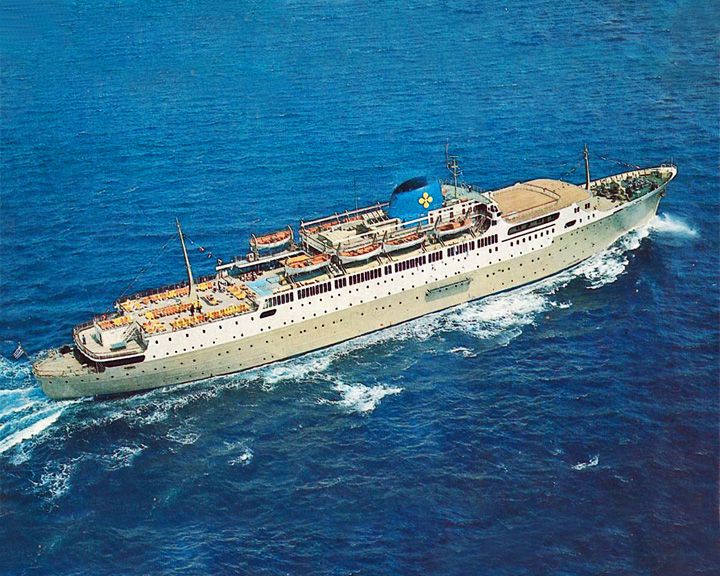 Oceanos, MTS — Greek cruise ship Realizing the ship was doomed, the crew fled in panic, neglecting their duties and the passengers. All 571 people on board were saved following one of the most dramatic and successful rescue operations of its kind. LAUNCHED: 1952, July → FATE: Sank off South Africa's eastern coast on August 4, 1991. |
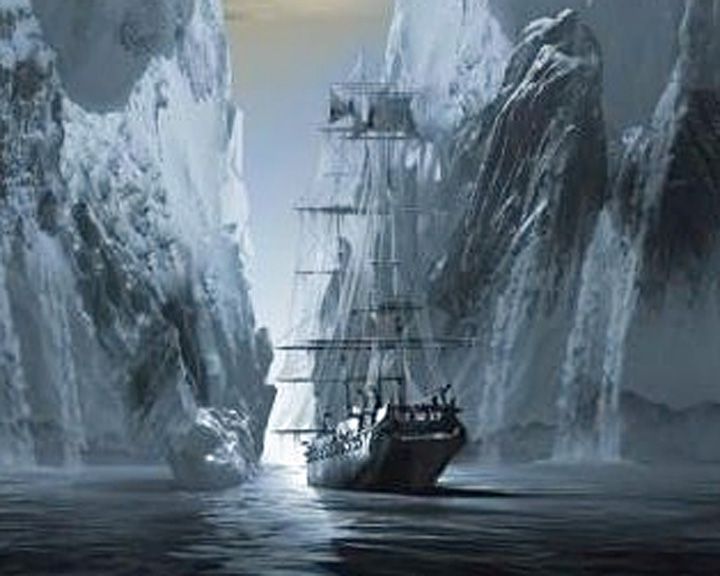 |
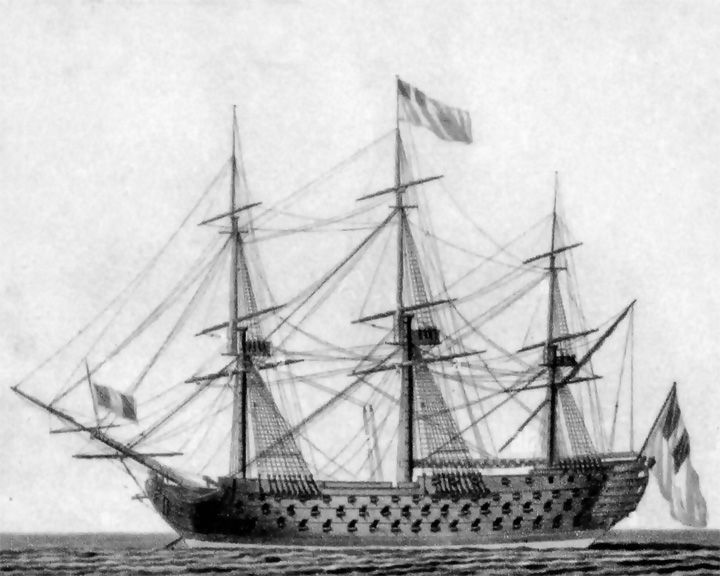 Orient — French ship of the line Famous for her role as flagship of the French fleet at the Battle of the Nile, 1798. During the battle, she caught fire and exploded, with an estimated loss of over 1,130 men; 760 are said to have survived. LAUNCHED: 1791, July 20 → FATE: She was destroyed by an explosion, August 1798. |
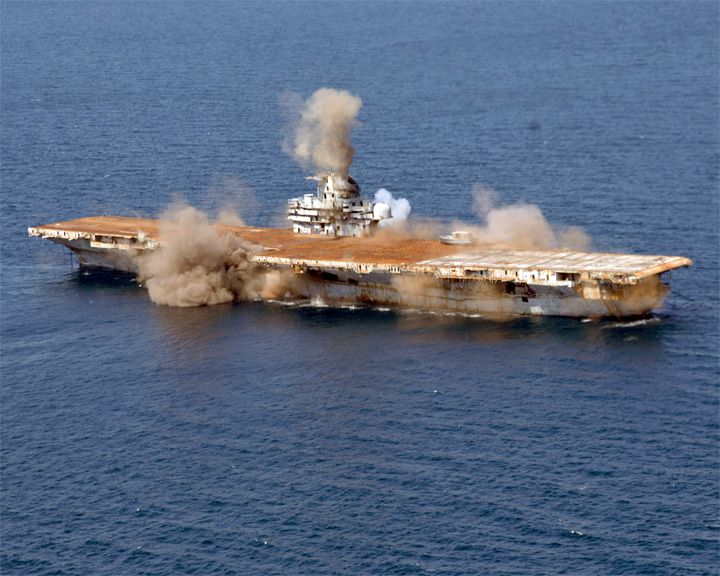 (Another (Another Oriskany, USS — American aircraft carrier, Essex class The world's largest, and the U.S.'s first, artificial reef. She had multiple reconfigurations and updates. In 1966, a flare accidentally ignited on the hangar bay causing a catastrophic fire killing 44 crewmen. LAUNCHED: 1945, October 18 → FATE: Sunk as an artifical reef May 17, 2006. |
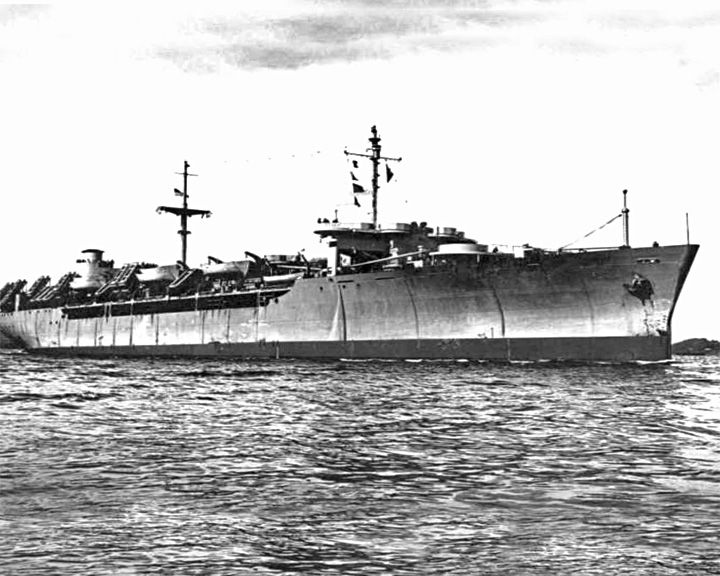 Ourang Medan, SS — Dutch cargo ship Purported ghost ship in Indonesian waters after her crew had died under suspicious circumstances. No registration records for a ship by the name of Ourang Medan could be located in various countries. LAUNCHED: 1945, first referenced → FATE: Supposedly exploded and sank June, 1947. |
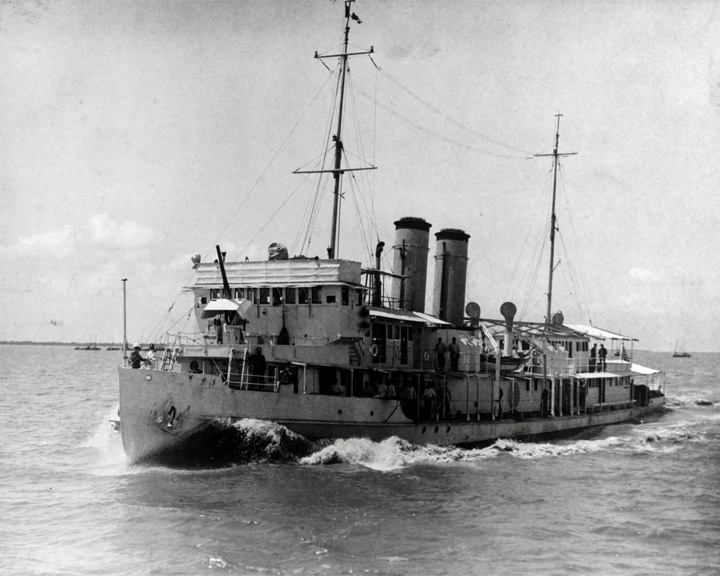 Panay, USS — American river gunboat The USS Panay incident; on December 12, 1937, a Japanese bombing attack on this U.S. Navy river gunboat and three Standard Oil Company tankers on the Yangtze River. Two newsreel cameramen were present on Panay and filmed much of the attack and afterward from shore as Panay sank. See Newsreel. LAUNCHED: 1927, November 10 → FATE: Sunk in December 12, 1937. |
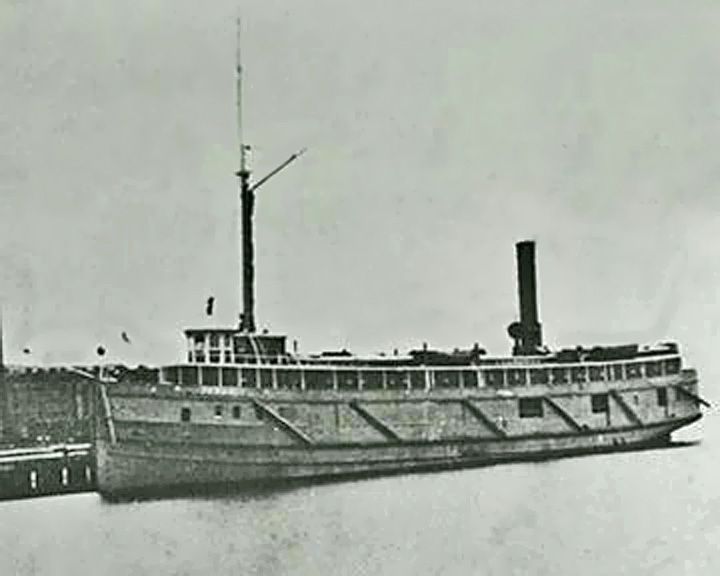 Pewabic, SS — American lake steamship; cargo ship Worst shipwreck on the Great Lakes with the loss of an estimated 125 lives, hundreds of tons of copper, silver, and iron ore. Over the years five divers died attempting to salvage the cargo. Some of the copper was recovered during World War I, the rest in 1974. LAUNCHED: 1863 → FATE: Collided with SS Meteor in Michigan's Thunder Bay and sank August 9, 1865. |
|
Page 10
|
 Portland, PS — American sidewheel steamer Known as the "Titanic of New England" and considered New England's worst maritime disaster, she went down with an estimated 192-245 passengers and crew. The storm that sank her, killed more than 400 persons and sank more than 150 other boats and ships. LAUNCHED: 1889 → FATE: Sank in the Portland Gale off of Cape Ann November 27, 1898. |
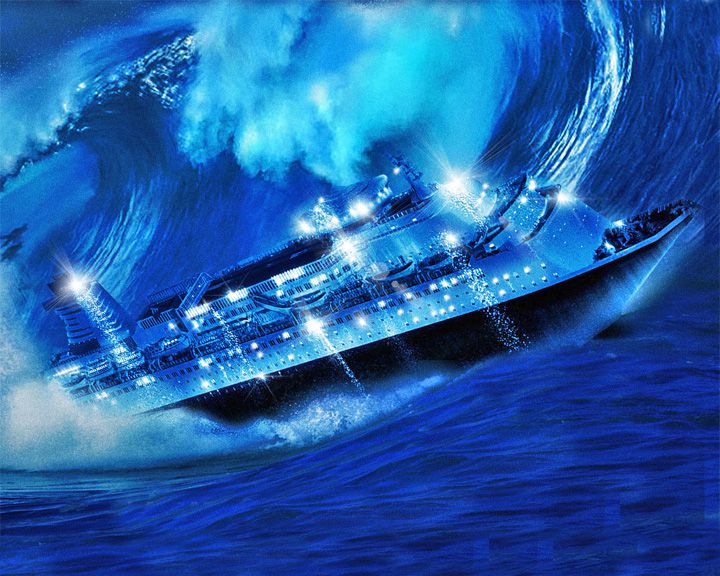 Poseidon, SS — American cruise ship; British ocean liner Subject of a ship sinking in the 1969 novel The Poseidon Adventure and four movie adaptations, 1972, 1979, 2005, and 2006. In each version of the story, the ship is capsized and several survivors try to make their way to the top of the overturned ship. LAUNCHED: 1969, original story → FATE: Inconclusive. |
 President, SS — British paddle steamship, with sails; ocean-going First steamship lost at sea on a transatlantic run, taking with her all 136 on board. Constructed with a third deck on top of the hull and designed with luxurious staterooms, she was top heavy and rolled excessively. LAUNCHED: 1840, August → FATE: Lost during a gale off Nantucket Shoals March of 1841. |
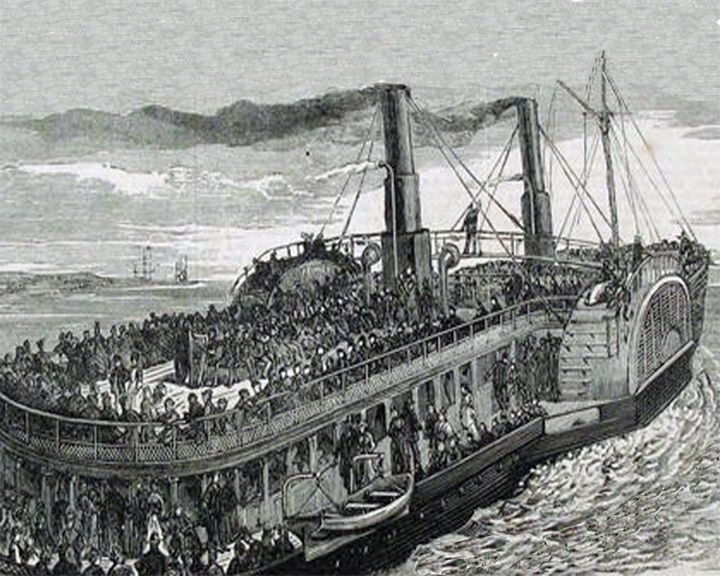 (Another (Another Princess Alice — British paddle steamer The greatest loss of life, 600-700, of any British inland waterway shipping accident after being struck by the Bywell Castle. Because of the river pollution from the sewage and local industrial output, the recovered bodies were covered with slime and toxins. LAUNCHED: 1865, July → FATE: Sank on September 3, 1878 after the collision on the River Thames. |
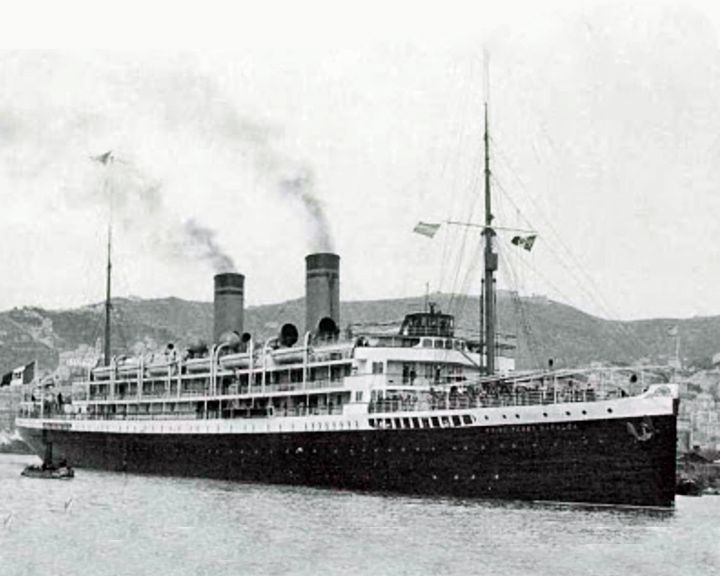 Princess Mafalda, SS — Italian ocean liner Her sinking and the loss of 314 people was the greatest loss of life in Italian shipping and the largest ever in the in the Southern Hemisphere in peacetime. At the time, she was the largest Italian passenger ship afloat and known for her luxury. LAUNCHED: 1908, October 18 → FATE: Sank of the coast of Brazil October 9, 1927. |
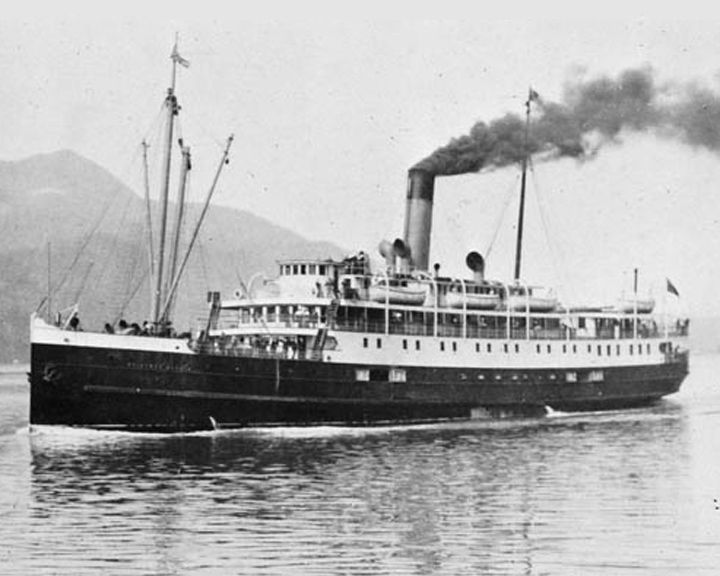 Princess Sophia, SS — Canadian passenger ship The worst maritime accident in the history of British Columbia and Alaska. The wreck and the loss of 343 people was controversial since some thought that all aboard could have been saved. LAUNCHED: 1911, November 18 → FATE: Grounded on October 24,1918 and sank following day during a storm near Juneau Alaska. |
 Prineton, USS — American screw steam warship First ship with screw propellers powered by an engine mounted entirely below the waterline. In 1844, during a pleasure cruise for dignitaries, a gun exploded killing 6 high-ranking federal officials and wounding 20 more, the worst such tragedy in American history. LAUNCHED: 1843, September 5 → FATE: Broken up at the Boston Navy Yard, October 1849. |
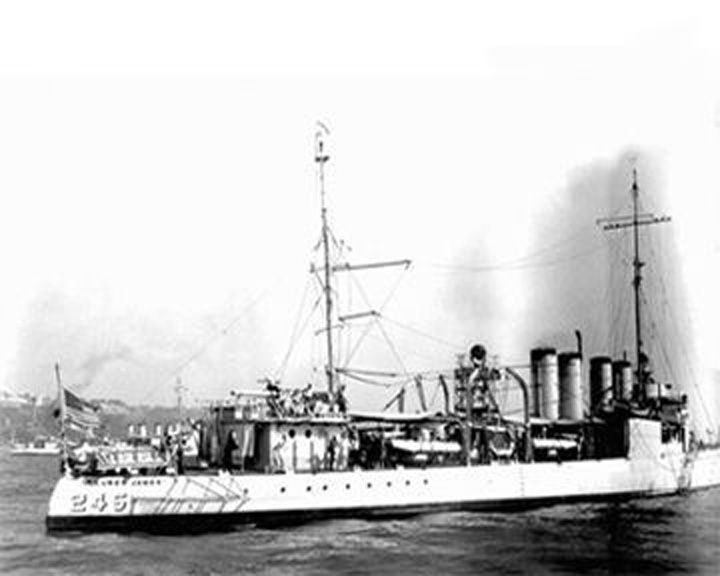 Reuben James, USS — American destroyer First US ship to be sunk in World War II. She was torpedoed while escorting an Atlantic convoy of supply ships to Britain; 159 crew were lost, 44 survived. LAUNCHED: 1919, October → FATE: Sunk October 31, 1941. |
|
Page 11
|
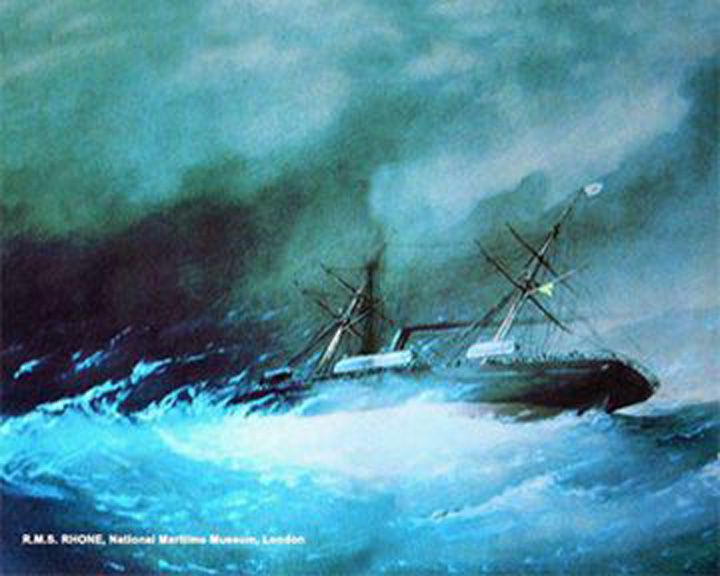 (Another (Another Rhone, RMS — British packet ship Sunk during a hurricane with the loss of approximately 123 lives. The wreckage is now a popular diving site and was used in the 1977 film The Deep that featured Jacqueline Bisset in a wet T‑shirt. LAUNCHED: 1865 → FATE: Wrecked in the British Virgin Islands on October 29, 1867. |
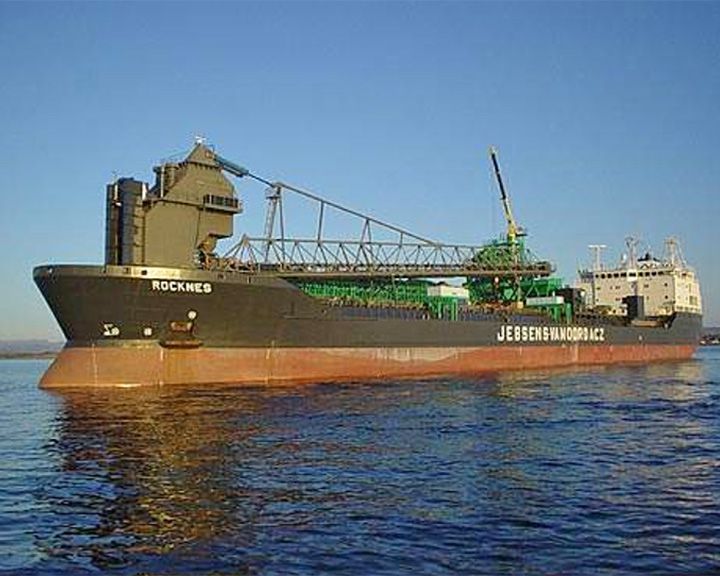 Rocknes, MV — Dutch rock dumping vessel, formerly a bulk carrier As the world's largest rock dumping vessel, her unexpected capsizing killed 18 of 30 crew. The tragedy was due to high center of gravity, uneven cargo loading, and a punctured hull after touching bottom. LAUNCHED: 2001 → FATE: She capsized in shallow water south of Bergen Norway January 19, 2004. She was to be righted and repaired. |
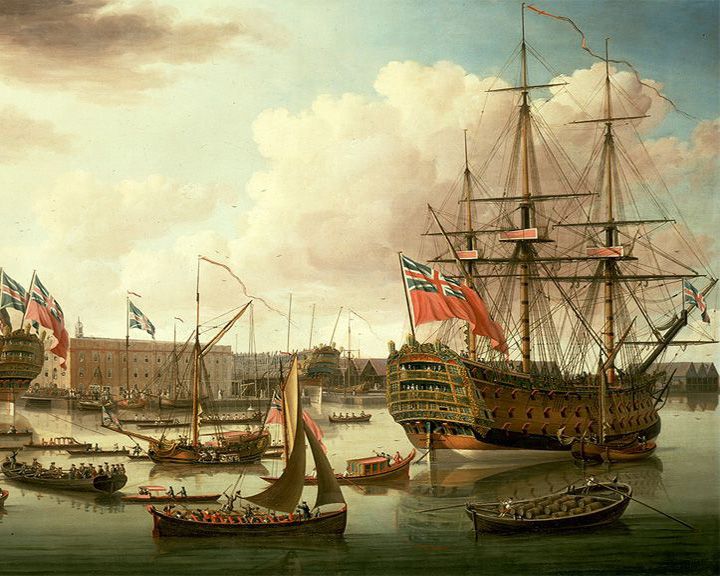 Royal George, HMS — English first-rate ship of the line One of the most serious maritime losses to occur in British water, sinking while undergoing routine maintenance taking more than 800 lives. She was the largest warship in the world at the time of launching. LAUNCHED: 1756, February 18 → FATE: Sank while anchored off Portsmouth August 29, 1782. |
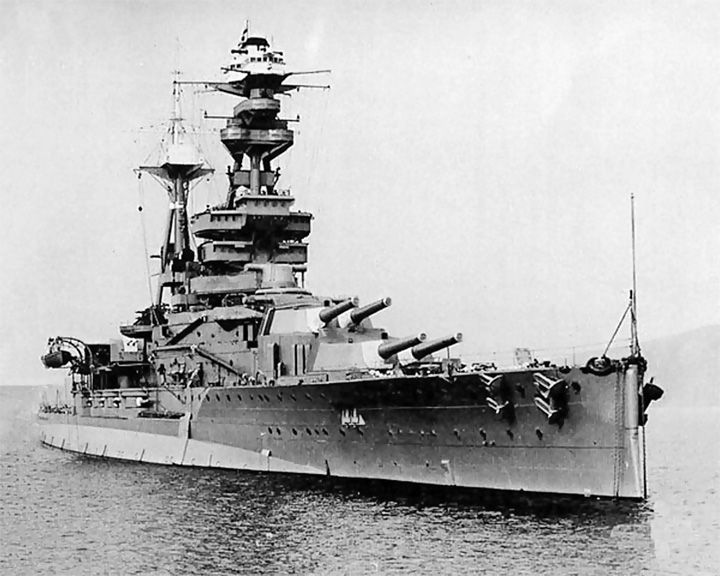 (Another (Another
Royal Oak, HMS — British Battleship, Revenge-class The first of five Royal Navy battleships and battlecruisers sunk in the World War II. When she was torpedoed, 835 of her 1,234 crew were killed. The brass letters of her name were removed from the sunken ship and are now displayed in the Scapa Flow visitor center. LAUNCHED: 1914, November 17 → FATE: Was sunk in Scapa Flow in October 1939 by a German U-boat, |
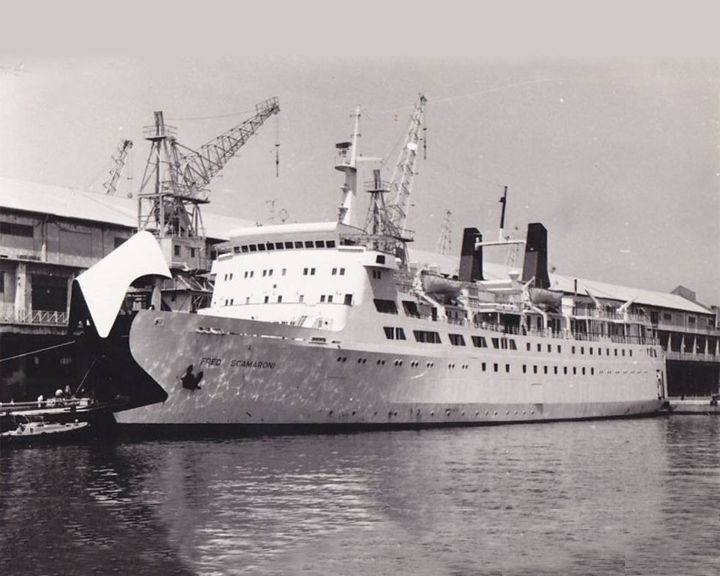 Salem Express, MV — French roll-on/roll/off car ferry She sank after colliding with reefs while carrying hundreds of Egyptian pilgrims. More than 500 passengers and crew were lost. The sunken wreck is in good condition although coral covers much of the ship. The wreck still contains cars and luggage. LAUNCHED: 1966 → FATE: Sank after collision on the Egyptian coast December 17, 1991. |
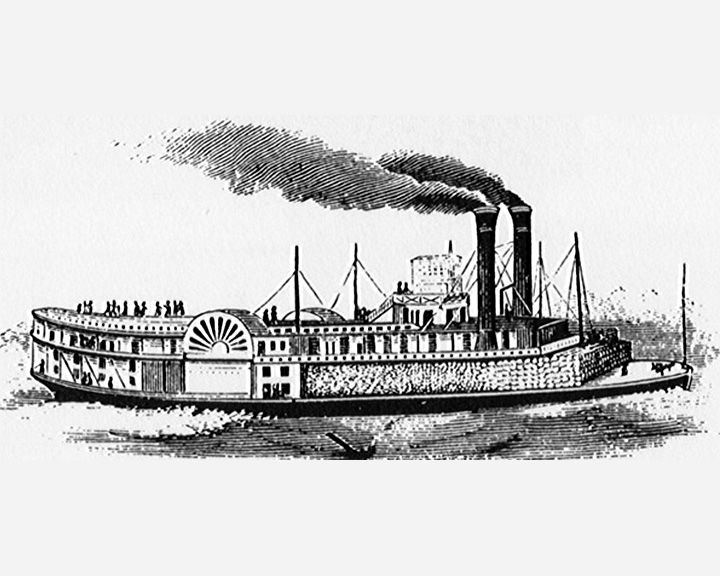 Saluda — American river paddle steamboat, side-wheeler Worst river steamboat accident in US; a tragedy for the Mormon Church. Over 100 passengers out of 175 were killed, including 28 Mormons. There were several dozen survivors. LAUNCHED: 1846, (sunk in 1847, raised and repaired) → FATE: Boilers exploded and destroyed the boat on the Missouri River near Lexington, Missouri, she sank April 9, 1852. |
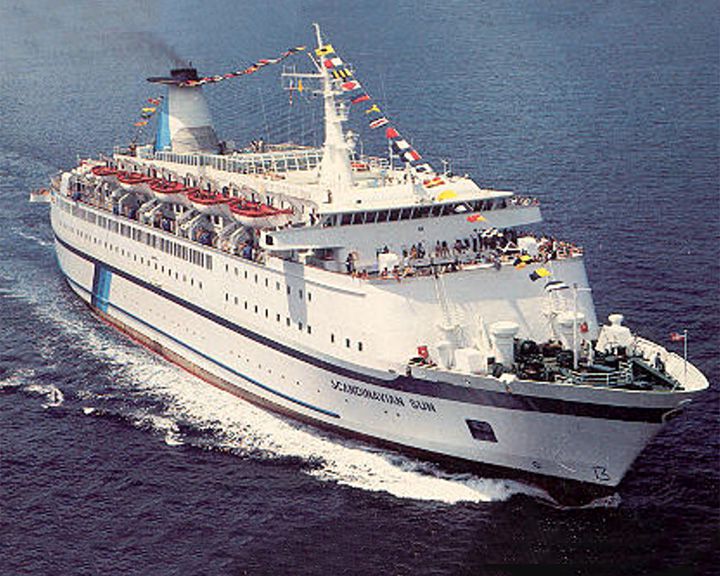 (Another (Another Scandinavian Star, MS — Scandinavian ferry for cars and passengers The ship was set on fire by an arsonist in 1990, killing 159 people. She had at various times the names of MS Massalia, Stena Baltica, Island Fiesta, Scandinavian Star, MS Candi, MS Regal Voyager, and finally MS Regal V. LAUNCHED: 1971, January 18 → FATE: As MS Regal V, she was broken up and scrapped May, 2004. |
 Scorpion, USS — American Skipjack-class nuclear submarine Went missing at sea with 99 crewmen, one of two nuclear submarines the U.S. Navy has lost, the other being USS Thresher (SSN-593). She carried two nuclear-tipped torpedoes. In November 2012, the submarine veterans asked the US Navy to reopen the investigation on the sinking. LAUNCHED: 1959, December 18 → FATE: Sank on May 22, 1968 in the Atlantic Ocean southwest of the Azores. |
|
Page 12
|
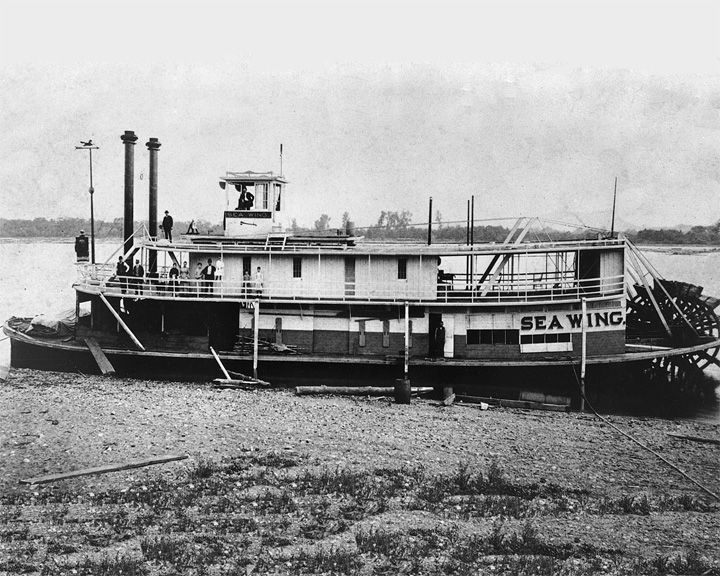 Sea Wing — American paddle steamer One of the worst maritime disasters that has occurred on the upper Mississippi River with 98 passengers drowned. Shortly after leaving Lake City on the excursion return trip, a violent storm broke and capsizing the steamer. LAUNCHED: 1888 → FATE: Sunk in July 13, 1890. Later recovered and rebuilt. |
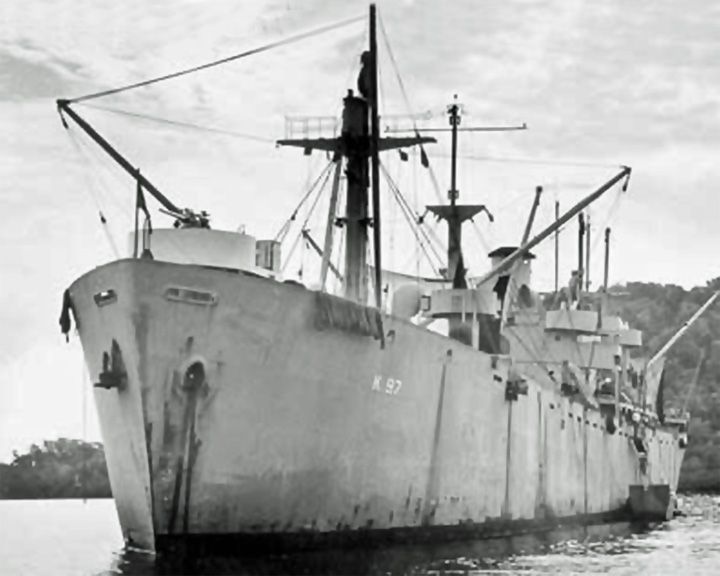 Serpens, USS — American Crater-class cargo ship The most catastrophic single-event loss of life in the history of the U.S. Coast Guard with 250 casualties. In the explosion, a 12-ton locomotive, the wooden pier it sat on, and 16 boxcars loaded with bombs and ammunition disappeared completely. LAUNCHED: 1943, April 5 → FATE: Exploded in complete destruction January 29, 1945, on the coast of Guadalcanal. |
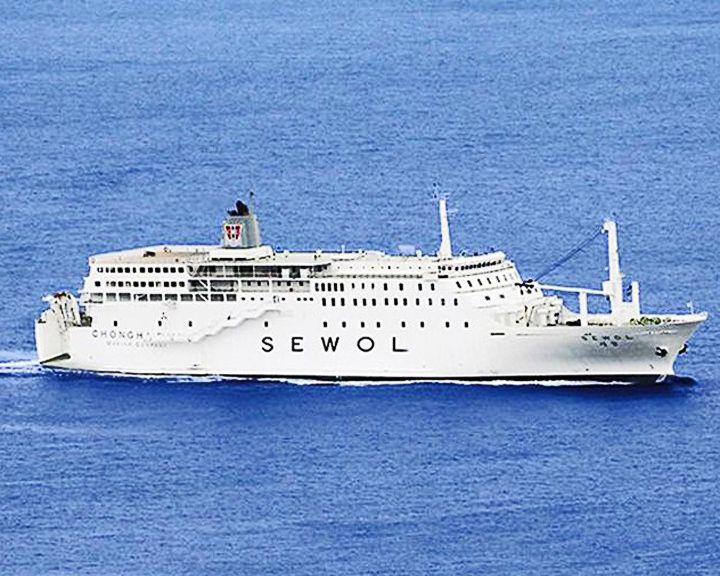 (Another (Another |
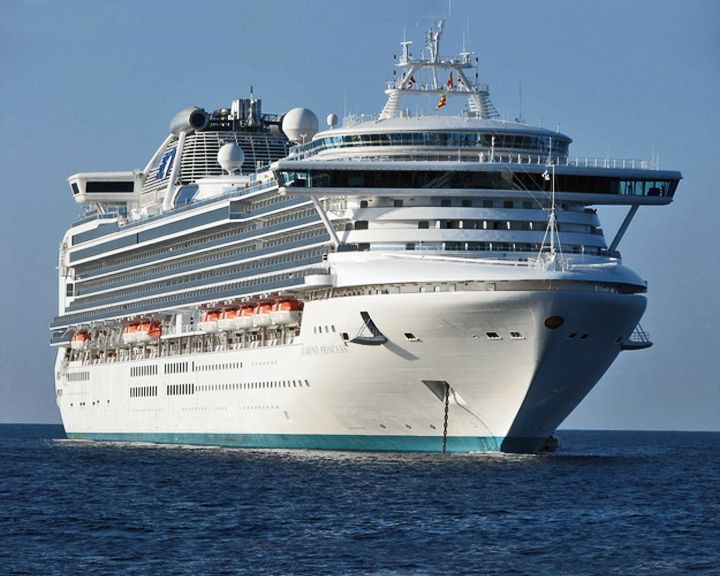 (Another (Another Star Princess — Italian cruise ship; American-British owned Fire amidship produced smoke, killing one passenger and injuring 13 others. With the fire initiated, highly combustible polycarbonate partitions, polyurethane deck tiles, and the plastic furniture produced large amounts of thick black smoke. LAUNCHED: 2001, May 18 → FATE: Damage repaired and still in service. |
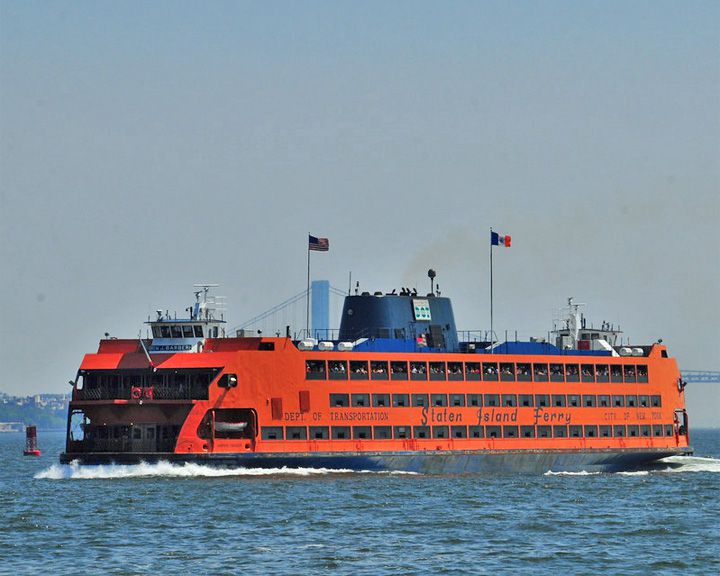 Staten Island Ferry — American passenger ferry boats A fleet of eight ferry boats sailing free of charge between Manhattan and Staten Island in New York. On October 15, 2003, the Andrew J. Barberi collided with a pier killing eleven people and injuring many others; NYC's deadliest mass-transit incident in 50 years. LAUNCHED: 1819 → FATE: Still in service. |
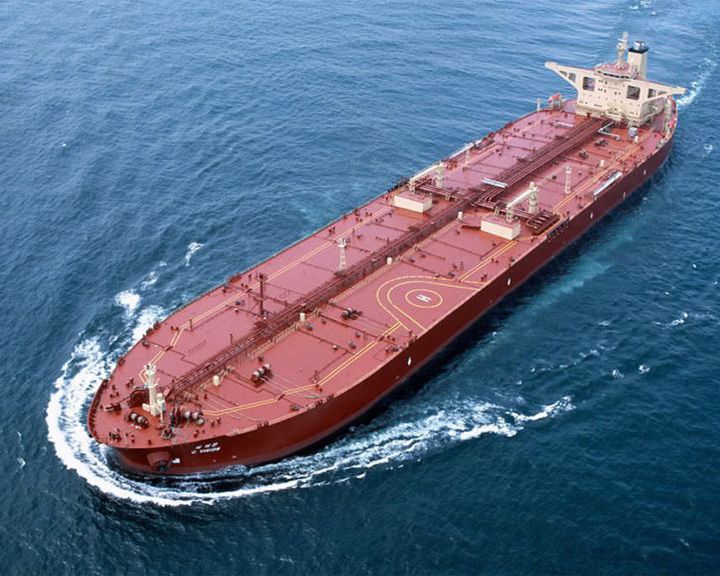 Stellar Daisy — South Korean very large oil carrier, VLOC. Converted in 2006 to ore carrier Demonstrated that ore-carriers converted from oil tanker are prone to disaster. Two crew survived, 22 lost at sea. LAUNCHED: 1993, February 18 → FATE: Sank off the coast of Uruguay on March 31, 2017. |
 (Another (Another Stockholm, MS — Swedish luxury cruise ship (ocean liner) Collided with the SS Andrea Doria in heavy fog off the coast of Nantucket. She sailed under dozens of other names and is currently MS Athena. LAUNCHED: 1948 → FATE: Still in use. |
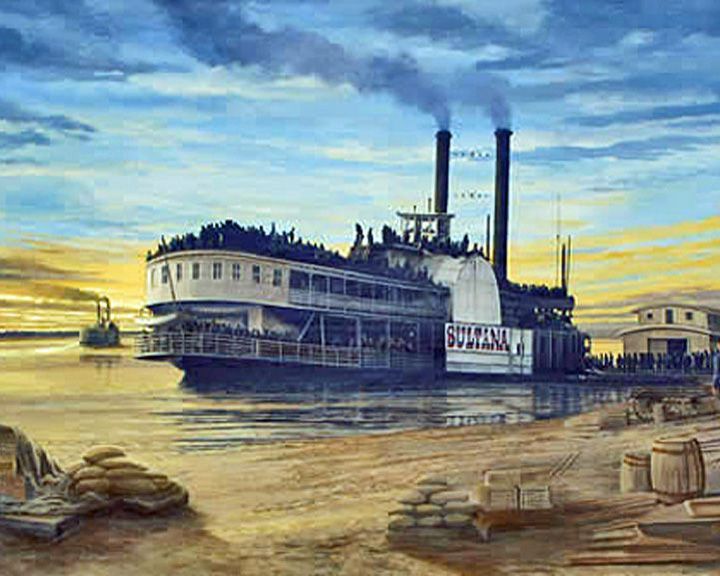 Sultana, SS — American paddle steamboat, stern-wheeler Tragically collided with the SS Narragansett. An estimated 1,800 of 2,400 passengers were killed when the ship's boilers exploded, earning her the appellation "Titanic of the Mississippi." LAUNCHED: 1863 → FATE: Sank April 27, 1865. |
|
Page 13
|
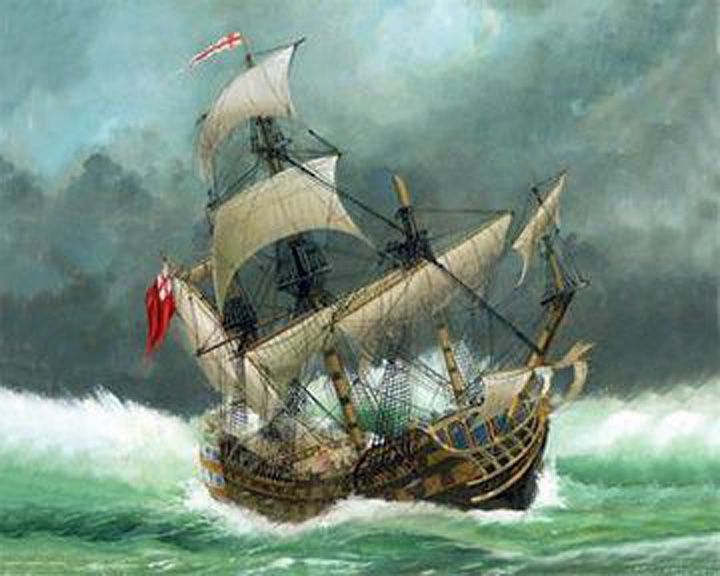 Sussex, HMS — English ship of the line, third-rate One of the most valuable wrecks ever with possibly 10 tons of gold coins and other valuables on board. Besides Sussex, 12 other ships of her flotilla sank with about 1,200 casualties making the disaster one of the worst in Royal Navy history. LAUNCHED: 1693, April 18 → FATE: Sank in a violent storm near the Strait of Gibraltar February 27, 1694. |
 Sydney, HMAS — Australia Leander-class light cruiser The most devastating loss of life for the Royal Australian Navy when 645 personnel went down with the ship during the battle with the German auxiliary cruiser Kormoran. The wrecks of Sydney and the Kormoran were discovered off the coast of Shark Bay in 2008. The Australians who died are commemorated at the Australian War Memorial. LAUNCHED: 1934, September 22 → FATE: Sunk by the German auxiliary cruiser Kormoran, November 19, 1941 off the coast of Western Australia. |
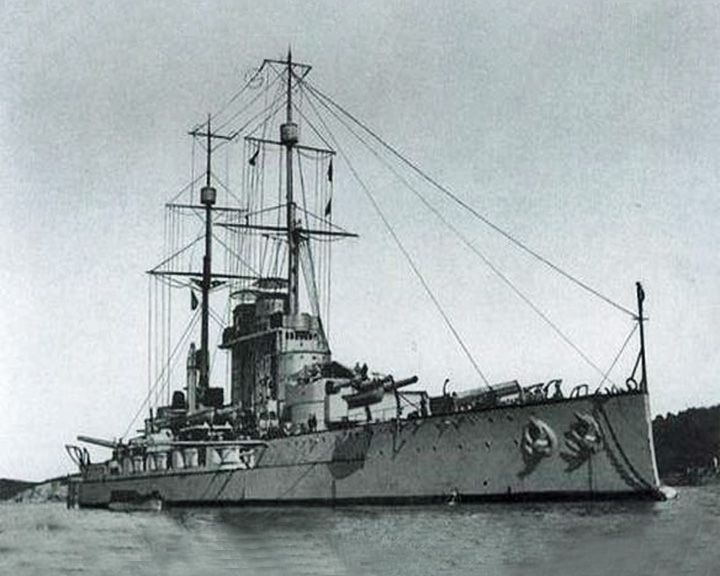 (Another (Another Szent István, SMS — Hungarian dreadnought The only battleship whose sinking was filmed during World War I. Having spent most of the war at anchor or out on gunnery training, she was sunk in her first and only mission; 89 sailors died. LAUNCHED: 1914, January 18 → FATE: Torpedoed off Premuda Island June 10, 1918. |
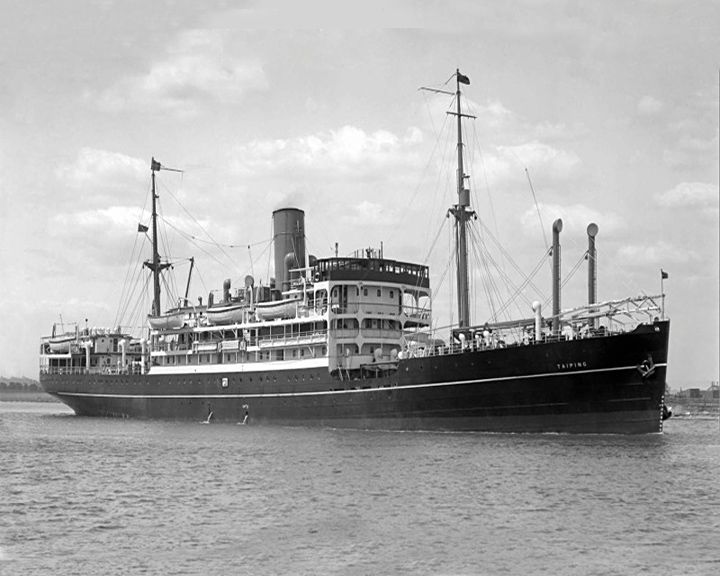 Taiping — Chinese steamship Tragically collided with another vessel killing over 1,500 people. A memorial to the ship and those who died aboard her was established at Port Keeling naval base on Taiwan. The 2014 movie The Crossing is based on the sinking. LAUNCHED: 1920, probably → FATE: Sank January 27, 1949. |
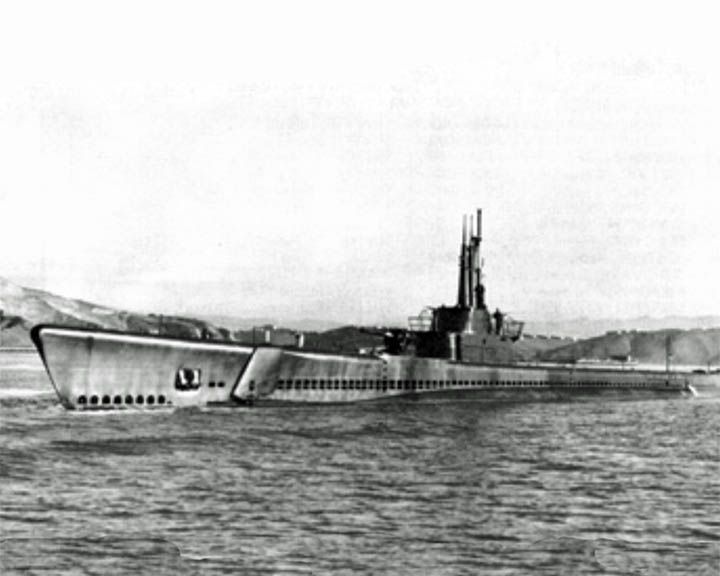 Tang, USS — American Balao class submarine Credited with sinking 31 enemy ships totaling 227,800 tons, unequaled among American submarines during World War II. When she was sunk by a circular run of her final torpedo, several crew escaped the sinking boat with a Momsen lung, the only known occasion of its use. 78 men were lost and the nine survived. LAUNCHED: 1943, August 18 → FATE: Sunk by her own torpedo in the Taiwan Strait October 24, 1944. |
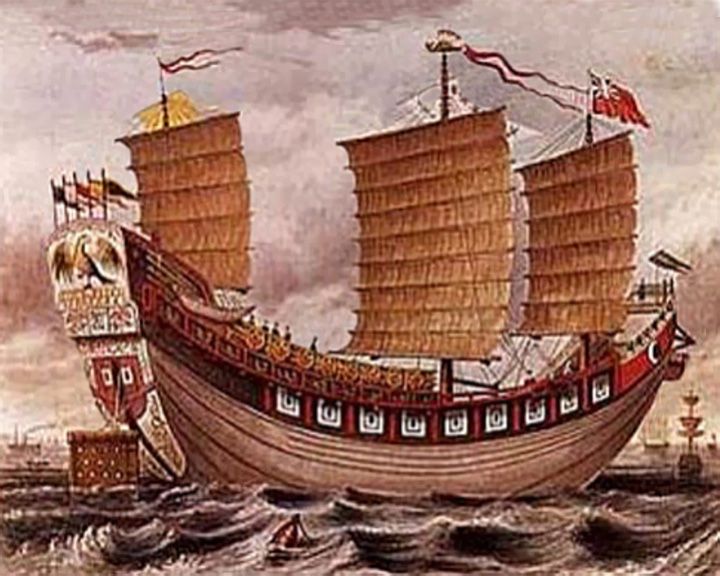 Tek Sin — Chinese ocean-going junk Called the "Titanic of the East" when it sank taking with it over 1,600 people. Only about 200 people survived, being rescued by another ship the next day. LAUNCHED: 1820, circa → FATE: Grounded on a reef, then sank on February 6, 1822. |
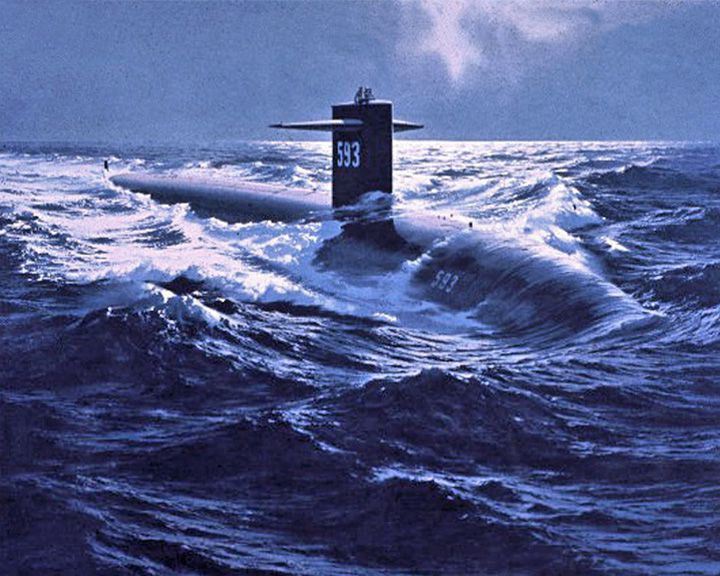 Thresher, USS — American nuclear submarine Lost at sea during deep-diving tests in 1963 with 129 crew. She was the lead ship of her class of nuclear-powered attack submarines and one of two nuclear submarines the U.S. Navy has lost, the other being USS Scorpion, SSN-589. LAUNCHED: 1960, July 18 → FATE: Sunk April 10, 1963. |
 (Another (Another Titanic, RMS — British luxury ocean liner The most famous ship sinking in history, she sank after hitting iceberg in the Atlantic, claiming over 1500 lives. Believed by many to be unsinkable, her disintegrating remains lie at a depth of 3,784 meters. Many movie have been made about her sinking including the 1997 film. LAUNCHED: 1911, May 18 → FATE: Sank in the North Atlantic April 15, 1912. |
|
Page 14
|
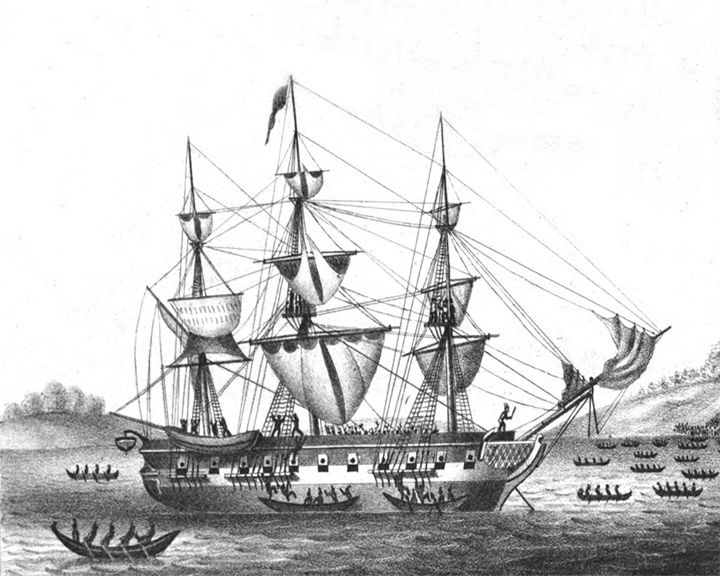 Tonquin — American merchant ship The ship was part of Astor's attempt to establish a fur trading outpost on the Pacific Northwest coast. After an angry encounter with natives, two surviving crew hid in the ship, then when the Indian natives returned to loot the ship, lit a fuse that detonated her powder magazine killing more than 100 natives and two crew. LAUNCHED: 1807, May 26 → FATE: Blown up June 16, 1811. |
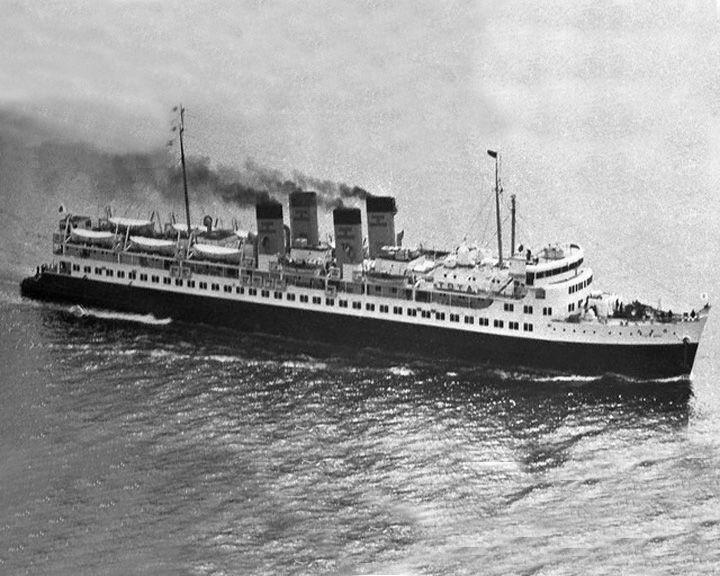 Toya Maru — Japanese train ferry Her sinking was one of the major factors behind the construction of the Seikan Tunnel between Hokkaido and Honshu. Perhaps 1,153 people were lost but the exact number is unknown because some people boarded without tickets and others cancelled just before sailing. LAUNCHED: 1947, November → FATE: Sank during a typhoon in the Tsugaru Strait September 26, 1954. |
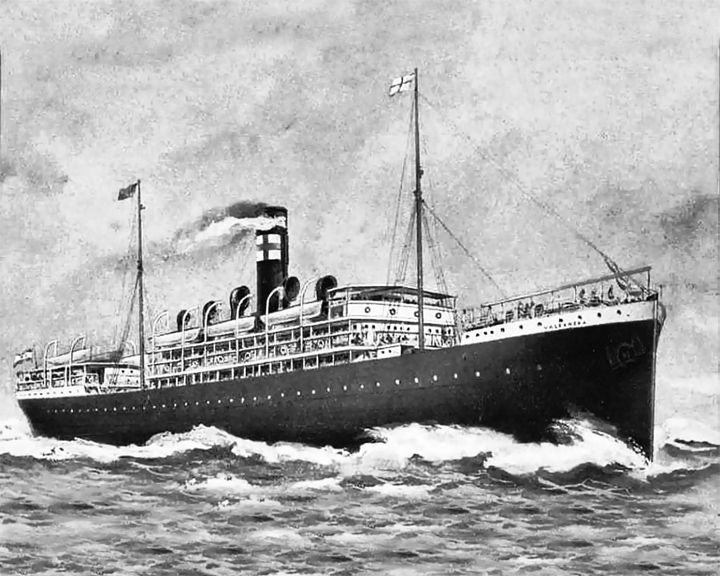 Valbanera, SS — Scotish, then Spanish passenger steamship Notable because of the mystery surrounding her disappearance during a hurricane. More than 480 passengers and crew were lost. Two empty lifeboats and the ships mast marked the spot where the ship sank. LAUNCHED: 1906 → FATE: Sank in a hurricane off Key West September of 1919. |
 Valencia, SS — American passenger steamboat (steamship) Consider the worst maritime disaster in the Graveyard of the Pacific, a treacherous area off the southwest coast of Vancouver Island, British Columbia. 27 years after her sinking, one of her life rafts was found floating peacefully in nearby Barkley Sound. LAUNCHED: 1882, May → FATE: Wrecked January 22, 1906. |
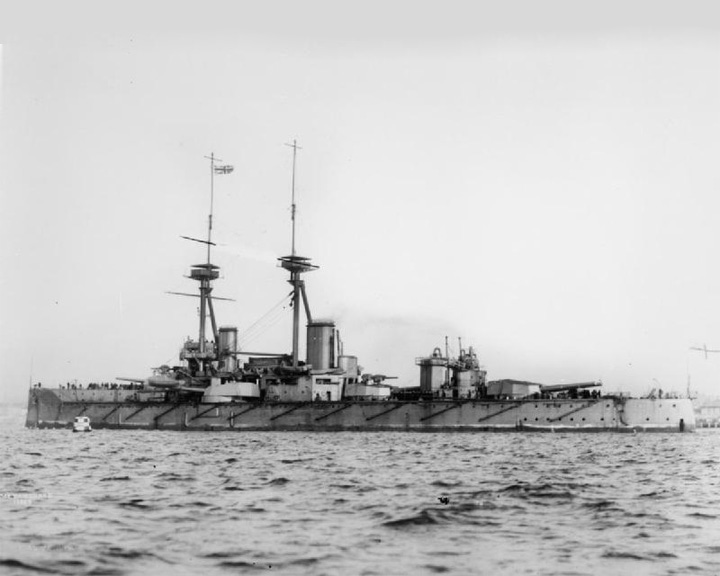 Vanguard, HMS (1909) — British St. Vincent class Dreadnaught She suffered a series of magazine explosions, sinking almost instantly, killing 843 of the 845 men aboard. Her captain coincidentally made a speech to the crew predicting the possible fate of the ship several hours before her sinking. Vanguard's wreck was heavily salvaged in search of non-ferrous metals before it was declared a war grave in 1984. Royal Navy divers placed a new Union Jack on the wreck. LAUNCHED: 1909, February 2 → FATE: Sunk by internal explosion at Scapa Flow, July 9, 1917. |
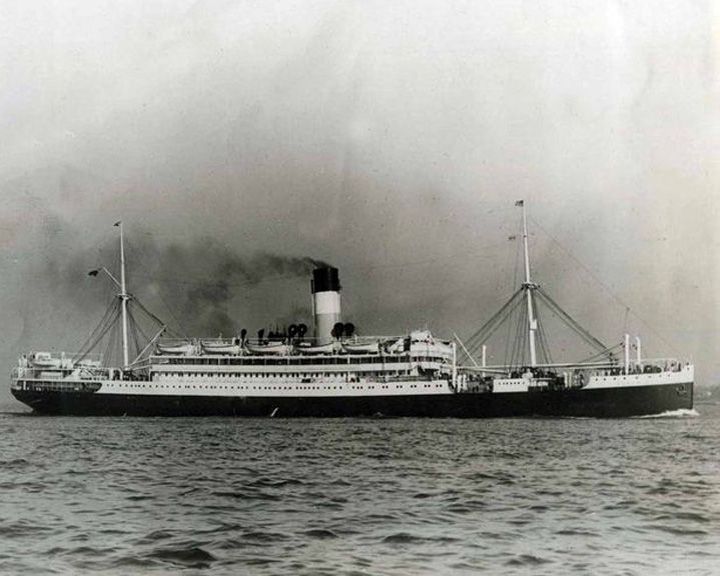 Vestris, SS — British passenger steamship The ship sank taking more passengers to their death than crew. 60 of 128 passengers survived, 155 of 198 crew survived. None of 13 children and only 8 of 33 women survived. LAUNCHED: 1912, May → FATE: Sank November 12, 1928. |
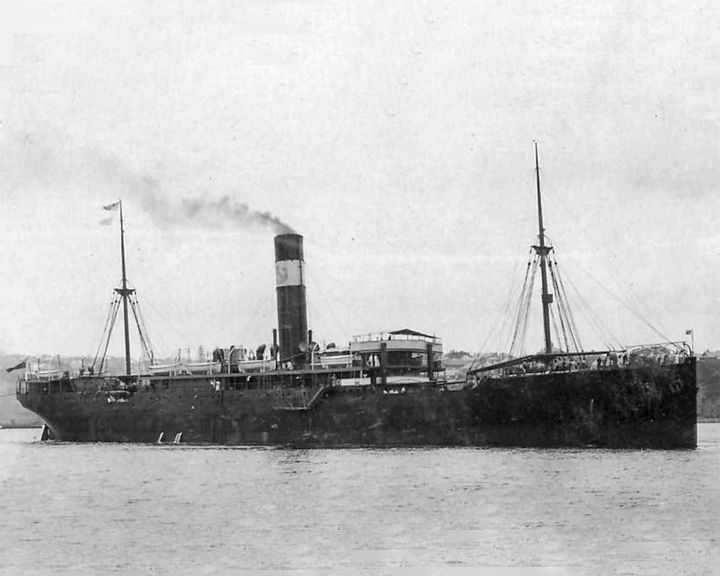 Waratah, SS — Australian steamship Known as the Australia's Titanic, she disappeared en route with 211 passengers and crew aboard. To this day, no trace of the ship has been found. LAUNCHED: 1908, October → FATE: Disappeared without trace south of Durban, July of 1909. |
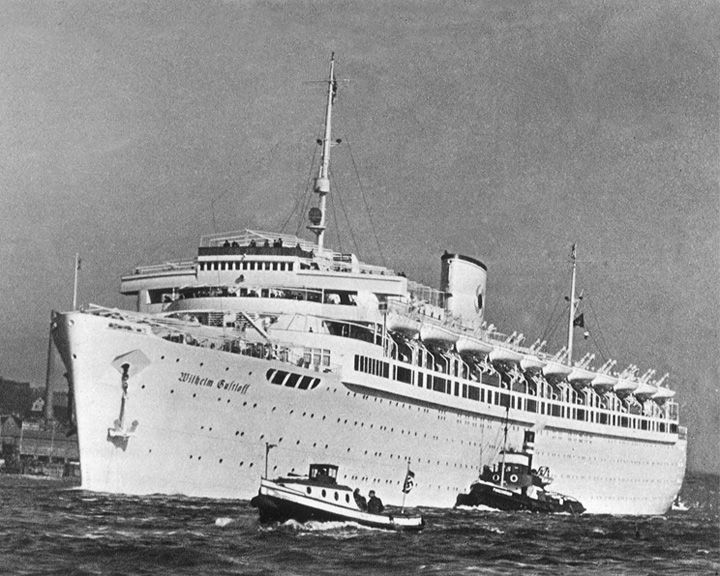 Wilhelm Gustloff, MV — German purpose-built cruise ship used as a hospital ship and troop ship in World War II Greatest ship disaster in recorded maritime history with an estimated 9,400 people were killed in the sinking. It was sunk by a Soviet submarine while participating in the evacuation of civilians, military personnel, and Nazi officials who were surrounded by the Red Army in East Prussia. LAUNCHED: 1937, May → FATE: Torpedoed in the Baltic Sea January 30, 1945. |
|
Page 15
|
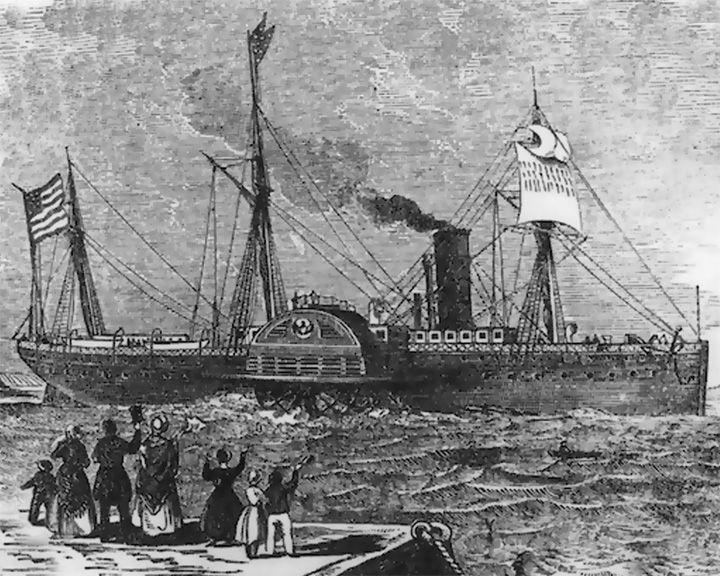 Winfield Scott, SS — American paddle steamer A sidewheel steamer that transported passengers and cargo between San Francisco and Panama in the early 1850s, during the California Gold Rush. She has been the object of numerous salvage operations since the crash and currently rests underwater as part of the Channel Islands National Park. LAUNCHED: 1850, October 5 → FATE: During a foggy night, crashed on Anacapa Island December 2, 1853. |
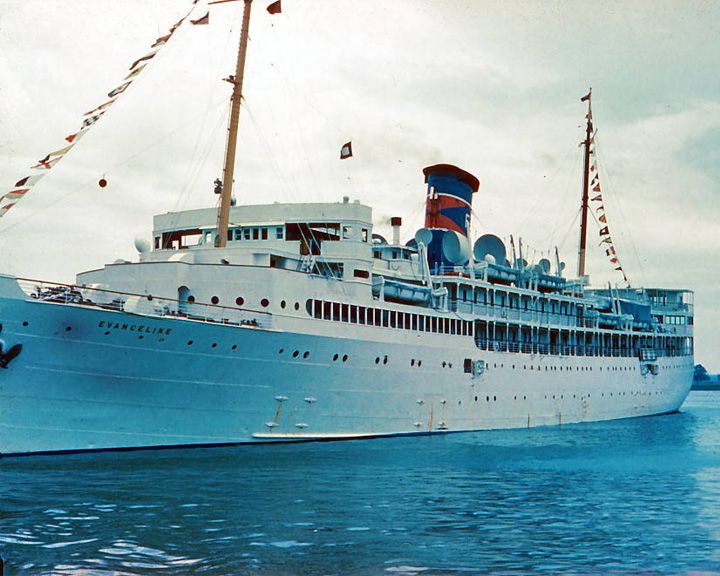 Yarmouth Castle, SS — American cruise ship Fire left 90 of 552 on board died. Her loss lead to the Safety of Life at Sea law. During World War II, she served as a troop ship and hospital ship in the Pacific. LAUNCHED: 1927 → FATE: Sunk in a blaze on the way to Nassau November 13, 1965. |
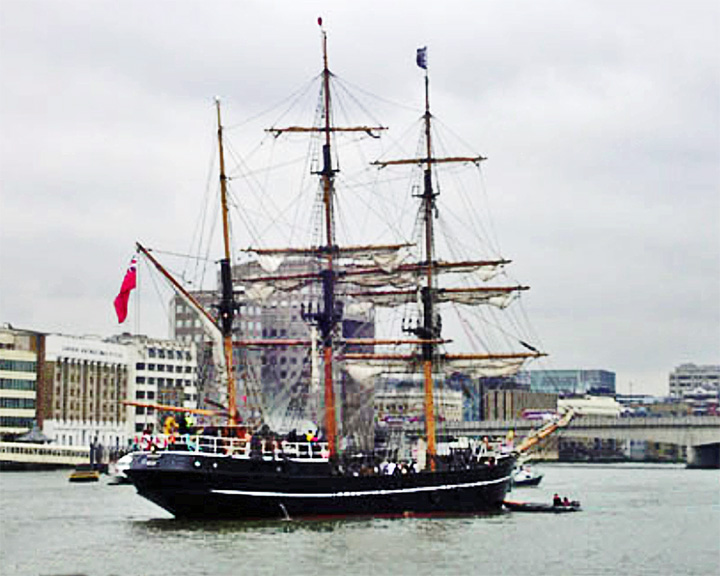 Zong — British square rigger slave ship Infamous for the 1781 massacre of 132 sick and dying slaves thrown overboard so the ship's owners could collect on their cargo insurance. The Zong had been a Dutch vessel the Zorgue seized by the British in 1781 off West Africa, along with 244 Africans on board. LAUNCHED: 1776, or ealier → FATE: Unknown. |
The number of All Countries Ships with Tragic Loss listed is 114 The contents of this page are available under the Creative Commons Attribution-Share Alike 3.0 Unported license and the GNU Free Documentation License (GFDL). |
|
|
First Ship on each page
| |
| Page | Ship Name (Country and Type) |
| 1. | Andrea Doria, SS (Italian ocean liner) |
| 2. | Bow Mariner (Norwegian tanker) |
| 3. | Cotopaxi, SS (American bulk carrier) |
| 4. | Essex (American barque) |
| 5. | Herald of Free Enterprise, MS (British roll-on/rolll-off ferry) |
| 6. | Kiangya, SS (Chinese steamship) |
| 7. | Leitha, SMS (Austro-Hungarian river monitor) |
| 8. | Merchant Royal (English merchant ship) |
| 9. | Norman Atlantic, MS (Italian roll-on/roll-off car ferry) |
| 10. | Portland, PS (American sidewheel steamer) |
| 11. | Rhone, RMS (British packet ship) |
| 12. | Sea Wing (American paddle steamer) |
| 13. | Sussex, HMS (English ship of the line) |
| 14. | Tonquin (American merchant ship) |
| 15. | Winfield Scott, SS (American paddle steamer) |
All Countries | |
| 1. | Andrea Doria, SS Italian ocean liner |
| 2. | Andrea Gail American fishing vessel |
| 3. | Arizona, USS American battleship |
| 4. | Association, HMS British second-rate ship of the line |
| 5. | Atlantic, RMS English ocean liner |
| 6. | Batavia Dutch galeon |
| 7. | Bow Mariner Norwegian tanker |
| 8. | Britannic, HMHS British ocean liner |
| 9. | Carroll A. Deering American schooner |
| 10. | City of Benares, SS British steam passenger ship |
| 11. | Cole, USS American aegis-equipped |
| 12. | Colossus, HMS British third-rate ship of the line |
| 13. | Conception, MV American dive boat |
| 14. | Costa Concordia Italian cruise ship |
| 15. | Cotopaxi, SS American bulk carrier |
| 16. | Curacoa, HMS British light-cruiser |
| 17. | Derbyshire, MV British cargo ship |
| 18. | Doña Paz, MV Japanese ferry |
| 19. | Eastland, SS American steamship |
| 20. | Edmund Fitzgerald, SS American lake cargo ship |
| 21. | El Faro, SS American container ship |
| 22. | Empress of Ireland Canadian ocean liner |
| 23. | Essex American barque |
| 24. | Estonia, MS German cruise ferry |
| 25. | Felicity Ace Japanese roll-on/roll-off cargo ship |
| 26. | Flying Dutchman Dutch sailing ship |
| 27. | Gaul English fishing trawler |
| 28. | General Slocum American river paddle steamboat |
| 29. | Grandcamp, SS American liberty ship |
| 30. | Henry B. Smith, SS American lake cargo ship |
| 31. | Herald of Free Enterprise, MS British roll-on/rolll-off ferry |
| 32. | Hermione, HMS British frigate |
| 33. | Houston, USS (CA-30) American cruiser |
| 34. | Indianapolis, USS American Portland-class |
| 35. | Iowa, USS American fast battleship |
| 36. | Joyita American luxury yacht |
| 37. | K-13 British K-class submarine |
| 38. | Kaz II Australian catamaran |
| 39. | Kiangya, SS Chinese steamship |
| 40. | Kursk, K-141 Russian nuclear submarine |
| 41. | Kuru, SS Finnish steamship |
| 42. | Laconia, RMS British ocean liner |
| 43. | Lady Elgin, PS American paddle steamer |
| 44. | Lady Lovibond English schooner |
| 45. | Laffey, USS American Allen M. Sumner-class destroyer |
| 46. | Lancastria, RMS British ocean liner |
| 47. | Leitha, SMS Austro-Hungarian river monitor |
| 48. | Lexington American steamboat |
| 49. | Lusitania, RMS British ocean liner |
| 50. | München, MS German LASH carrier |
| 51. | Maine, USS American battleship |
| 52. | Marine Electric American bulk carrier |
| 53. | Mary Celeste American brigantine |
| 54. | Medusa French frigate |
| 55. | Merchant Royal English merchant ship |
| 56. | Mighty Servant 2 American heavy lift ship |
| 57. | Mont Blanc, SS French cargo ship |
| 58. | Morro Castle, SS American cruise ship |
| 59. | Moskva Russian guided missile cruiser |
| 60. | Mount Hood, USS American ammunition ship |
| 61. | Myron, SS American wooden steamship |
| 62. | Norge, SS Norwegian, then Danish ocean liner |
| 63. | Norman Atlantic, MS Italian roll-on/roll-off car ferry |
| 64. | Oceanos, MTS Greek cruise ship |
| 65. | Octavius English schooner |
| 66. | Orient French ship of the line |
| 67. | Oriskany, USS American aircraft carrier |
| 68. | Ourang Medan, SS Dutch cargo ship |
| 69. | Panay, USS American river gunboat |
| 70. | Pewabic, SS American lake steamship |
| 71. | Portland, PS American sidewheel steamer |
| 72. | Poseidon, SS American cruise ship |
| 73. | President, SS British paddle steamship |
| 74. | Princess Alice British paddle steamer |
| 75. | Princess Mafalda, SS Italian ocean liner |
| 76. | Princess Sophia, SS Canadian passenger ship |
| 77. | Prineton, USS American screw steam warship |
| 78. | Reuben James, USS American destroyer |
| 79. | Rhone, RMS British packet ship |
| 80. | Rocknes, MV Dutch rock dumping vessel |
| 81. | Royal George, HMS English first-rate ship of the line |
| 82. | Royal Oak, HMS British Battleship |
| 83. | Salem Express, MV French roll-on/roll/off car ferry |
| 84. | Saluda American river paddle steamboat |
| 85. | Scandinavian Star, MS Scandinavian ferry |
| 86. | Scorpion, USS American Skipjack-class nuclear submarine |
| 87. | Sea Wing American paddle steamer |
| 88. | Serpens, USS American Crater-class cargo ship |
| 89. | Sewol, MS Korean ferry |
| 90. | Star Princess Italian cruise ship |
| 91. | Staten Island Ferry American passenger ferry |
| 92. | Stellar Daisy South Korean very large oil carrier |
| 93. | Stockholm, MS Swedish luxury cruise ship |
| 94. | Sultana, SS American paddle steamboat |
| 95. | Sussex, HMS English ship of the line |
| 96. | Sydney, HMAS Australia Leander-class light cruiser |
| 97. | Szent István, SMS Hungarian dreadnought |
| 98. | Taiping Chinese steamship |
| 99. | Tang, USS American Balao class submarine |
| 100. | Tek Sin Chinese ocean-going junk |
| 101. | Thresher, USS American nuclear submarine |
| 102. | Titanic, RMS British luxury ocean liner |
| 103. | Tonquin American merchant ship |
| 104. | Toya Maru Japanese train ferry |
| 105. | Valbanera, SS Scotish, then Spanish passenger steamship |
| 106. | Valencia, SS American passenger steamboat |
| 107. | Vanguard, HMS (1909) British St. Vincent class Dreadnaught |
| 108. | Vestris, SS British passenger steamship |
| 109. | Waratah, SS Australian steamship |
| 110. | Wilhelm Gustloff, MV German purpose-built cruise ship |
| 111. | Winfield Scott, SS American paddle steamer |
| 112. | Yarmouth Castle, SS American cruise ship |
| 113. | Zong British square rigger |
|
About the Data There are more than 400 ships in this database, but the initial list is only for famous ships names that begin with letters "A-B". For other listings, use the country and type tabs. Touching (or cursor over) a ship image produces an enlargement. Touch anywhere else (or move the cursor off the image) to close the larger image. Touching (or clicking on) any underlined name will link to a page with more information. Although submarines are usually called boats, they are grouped with ships here. Most of the information comes from Wikipedia. |
^
Other Pages in Names Galore: | |
Famous Cowboy Names Sports Team Names Other Name Lists | Name Generators Naming Fun Stories about Names |